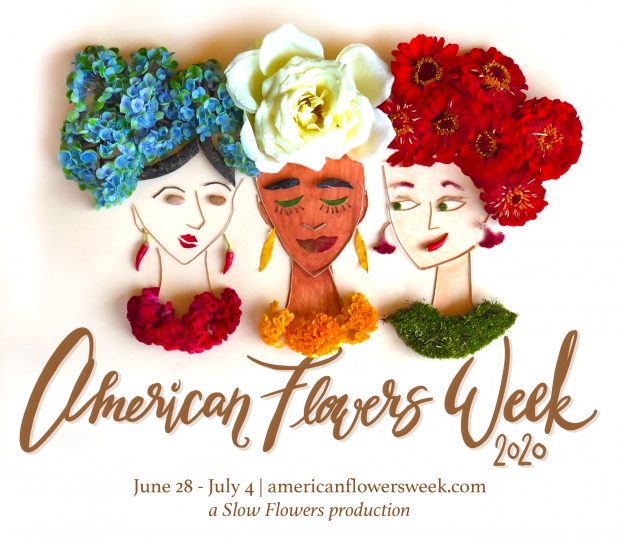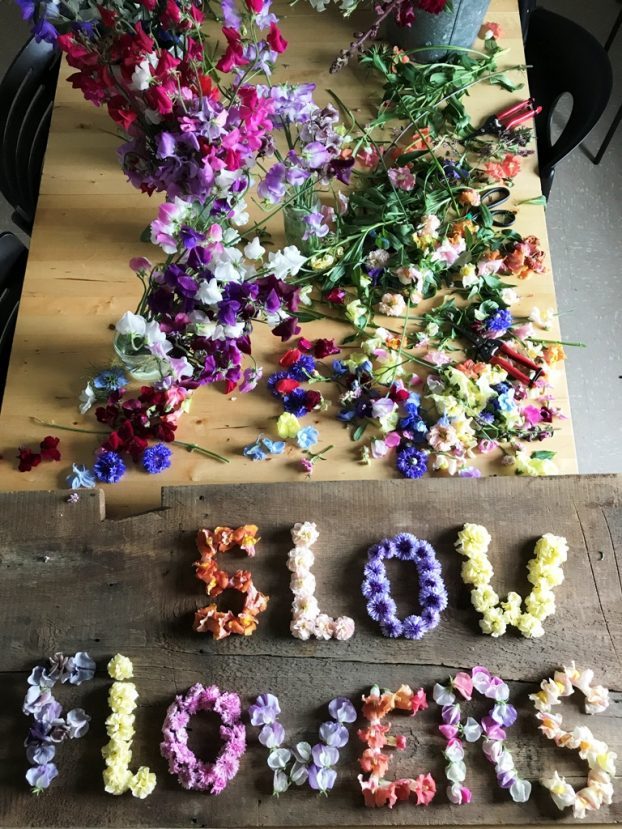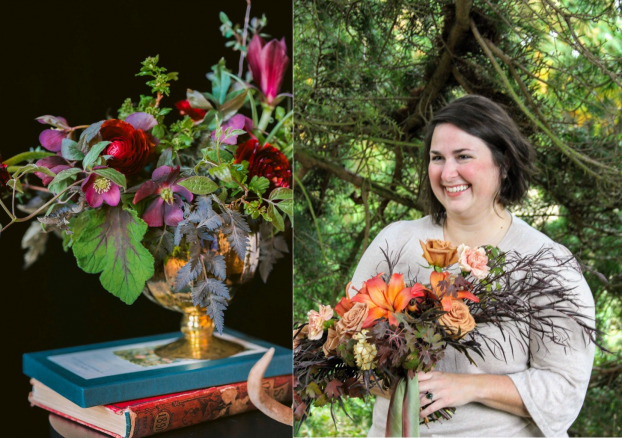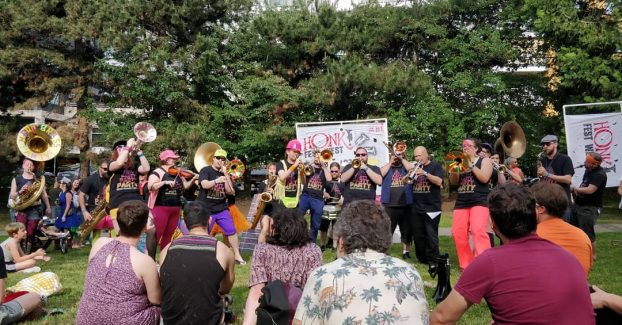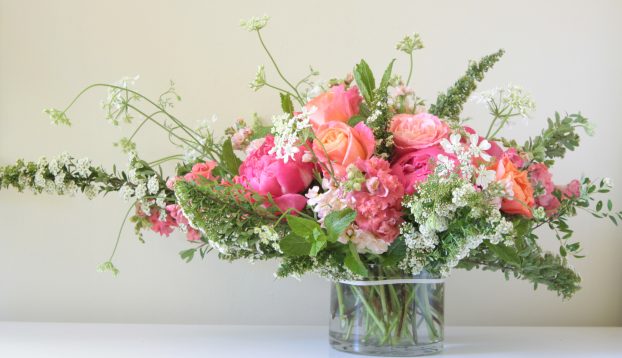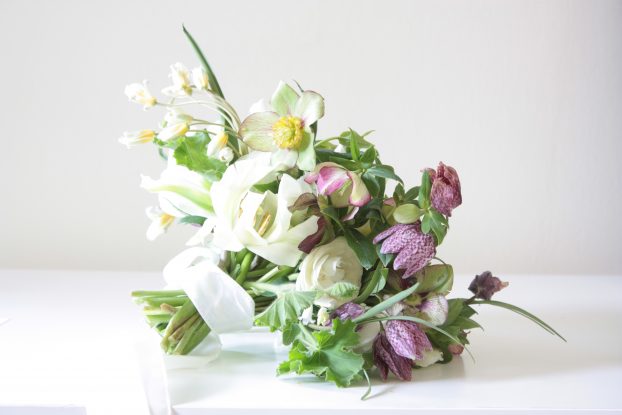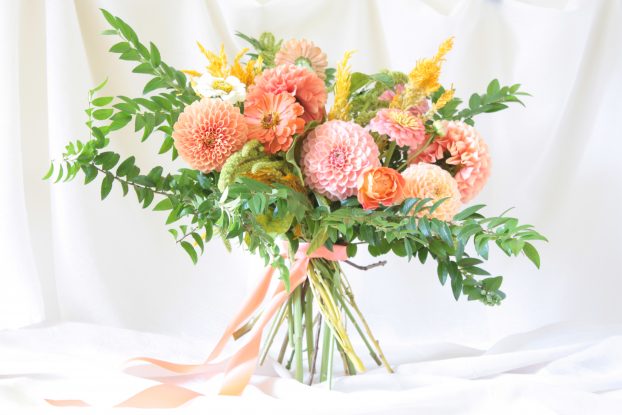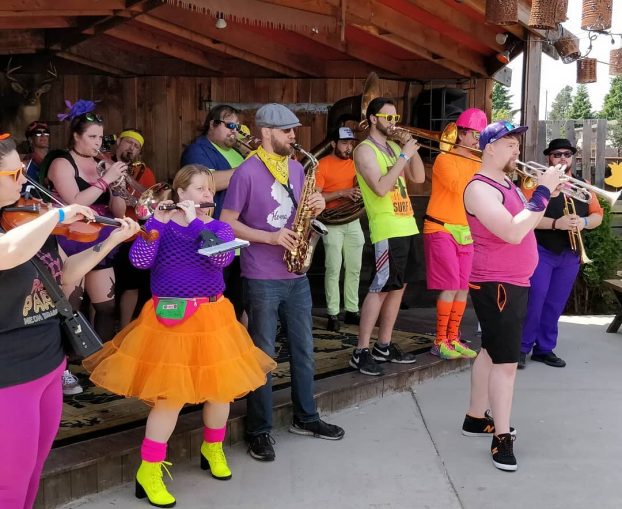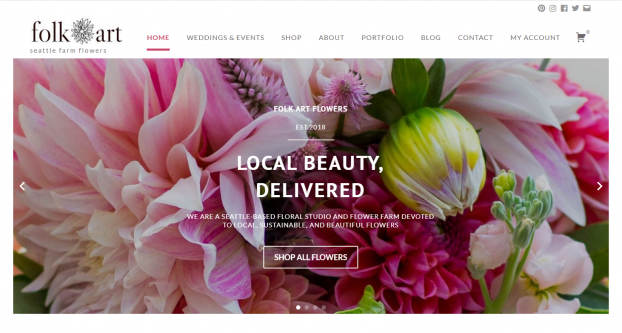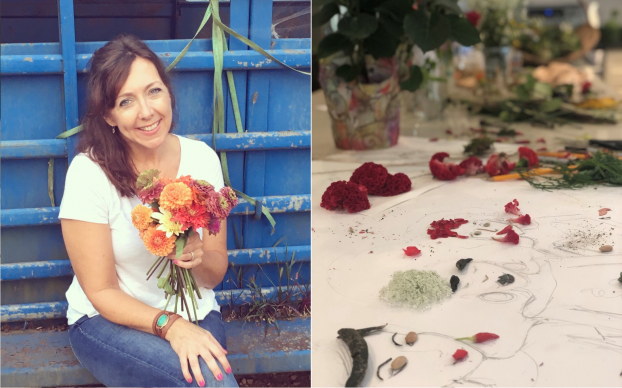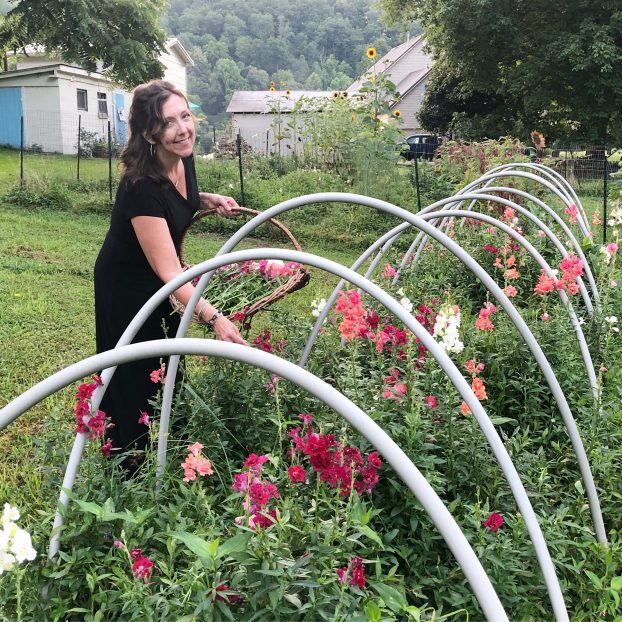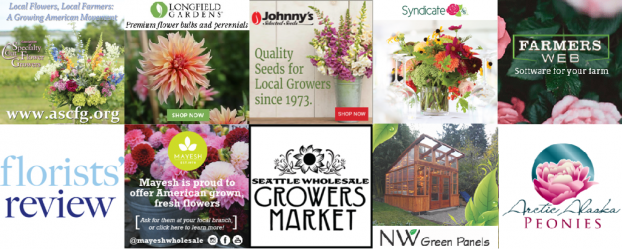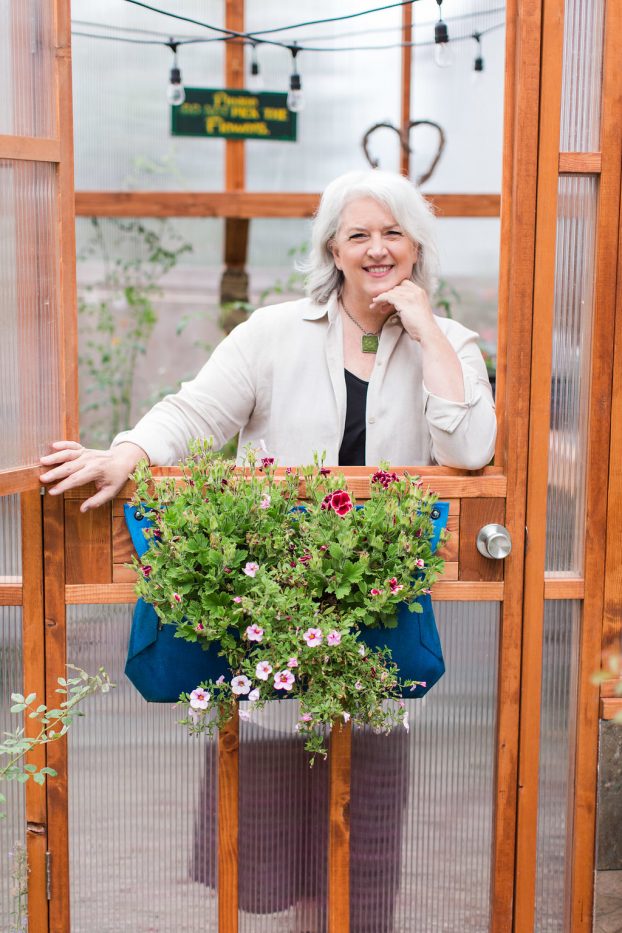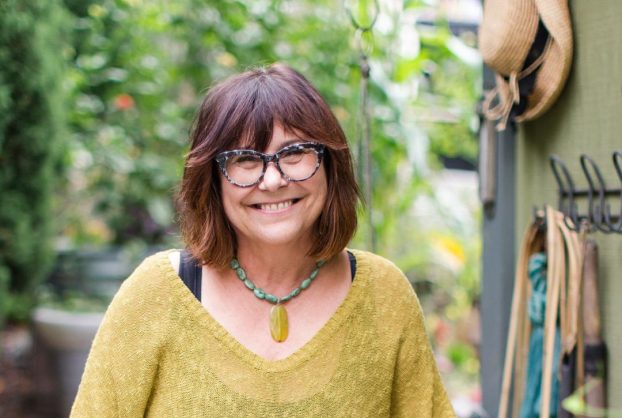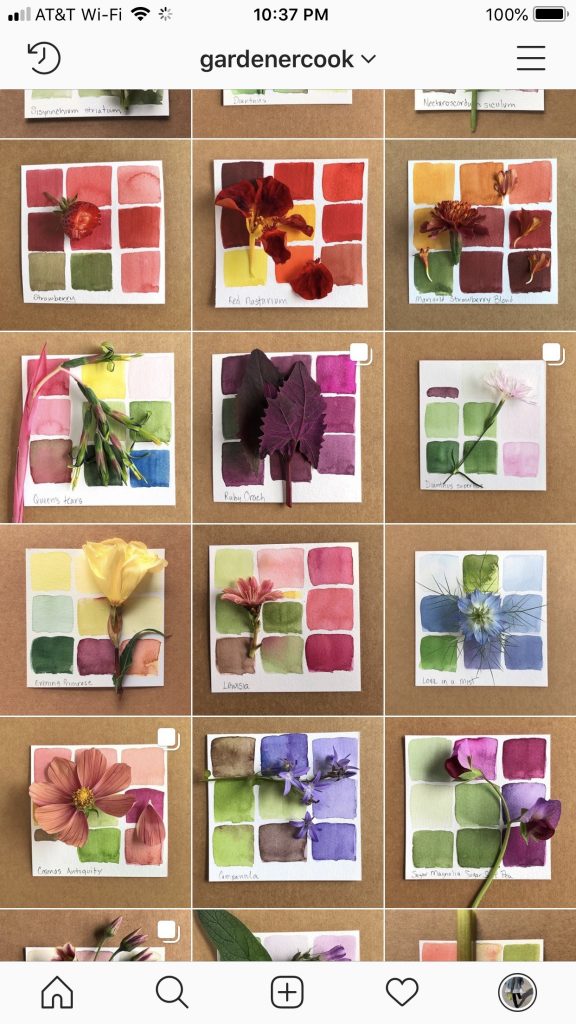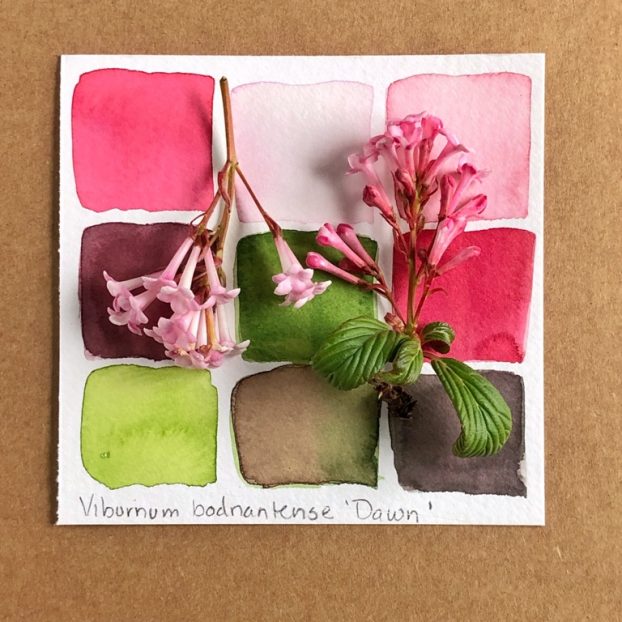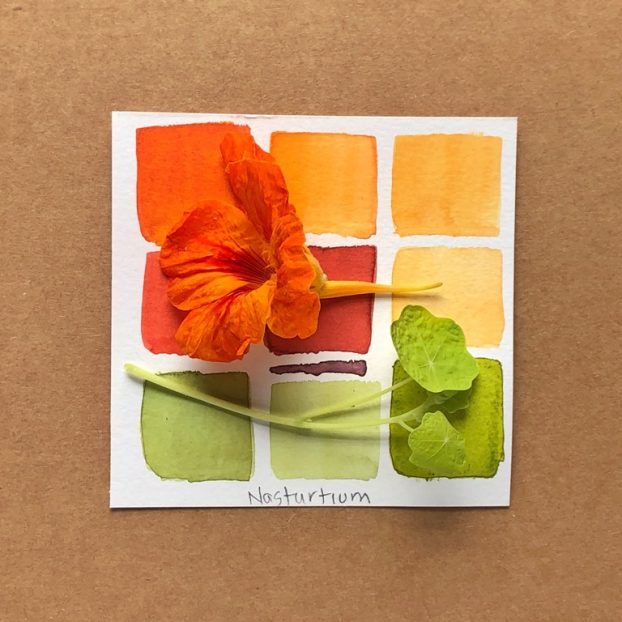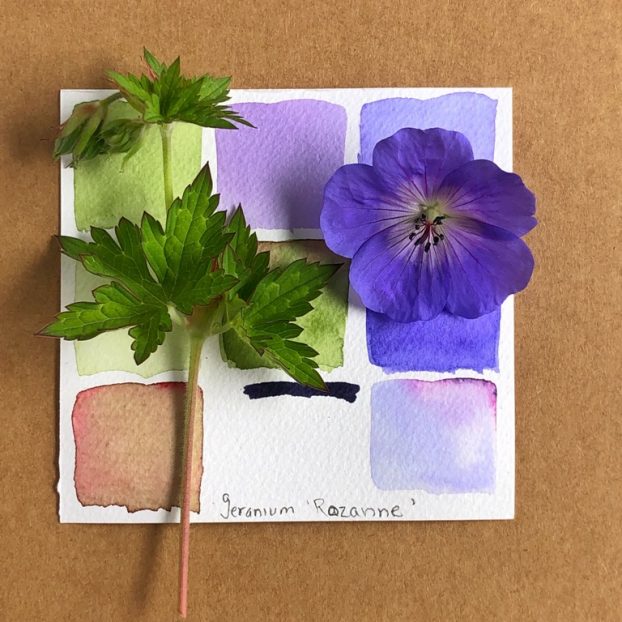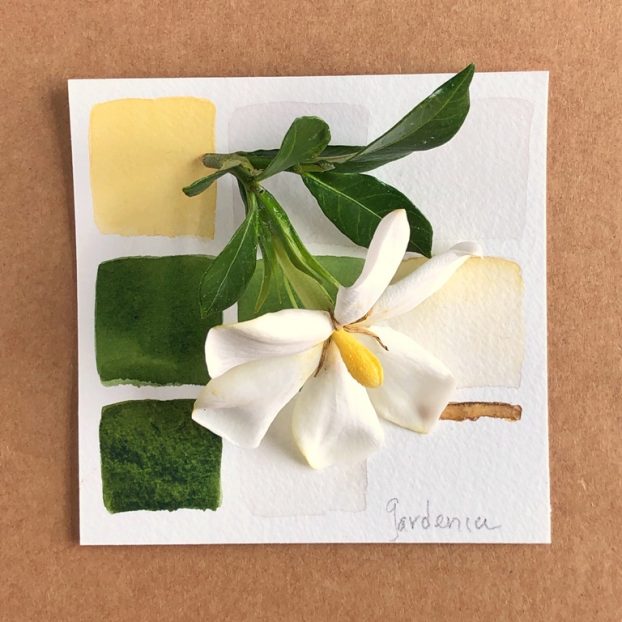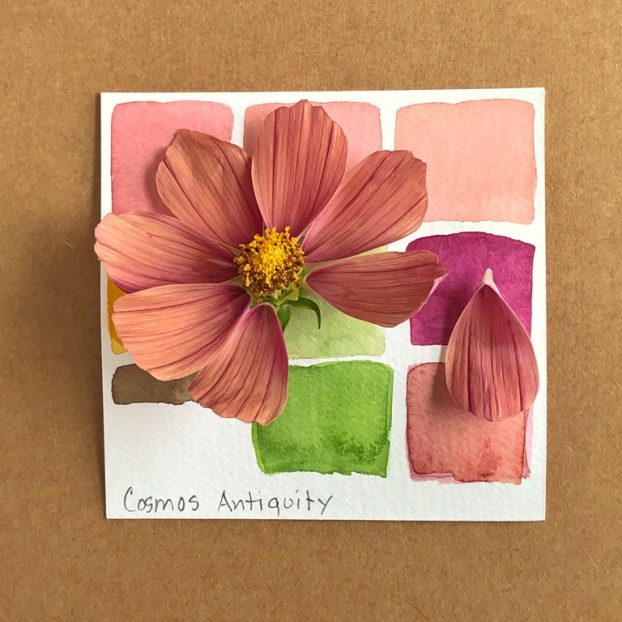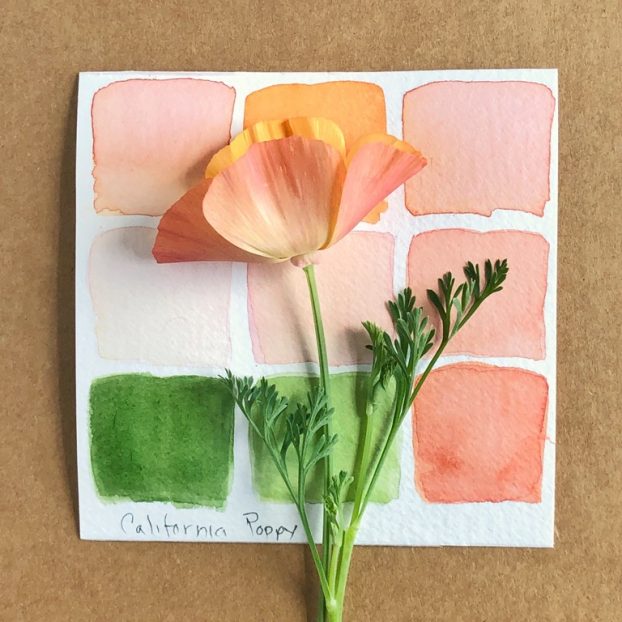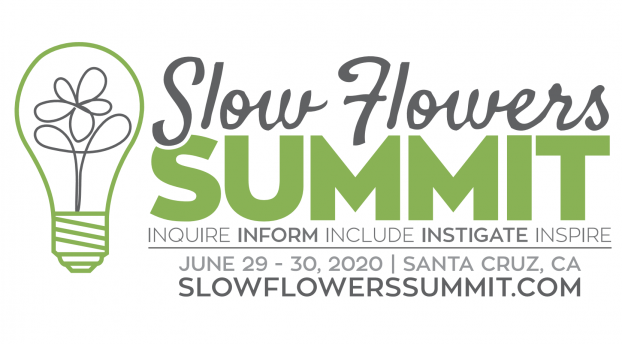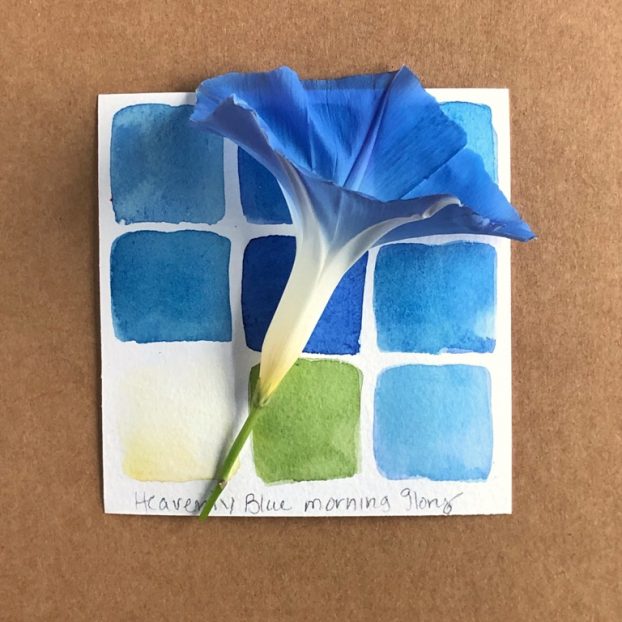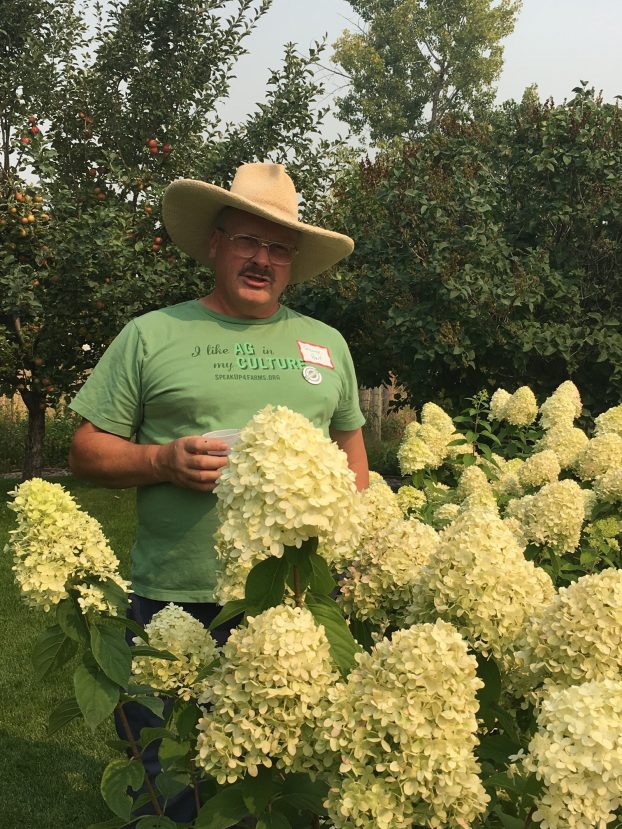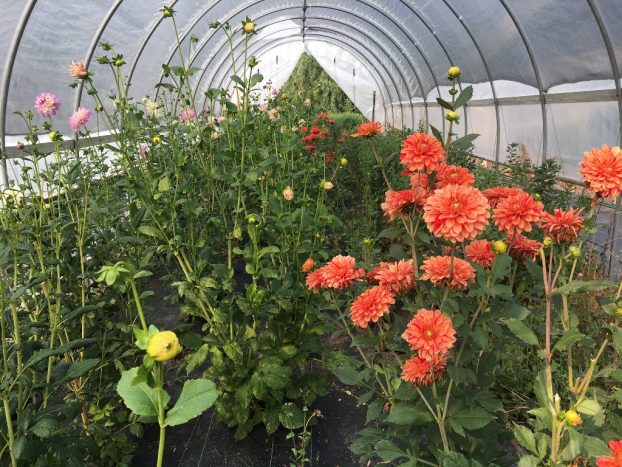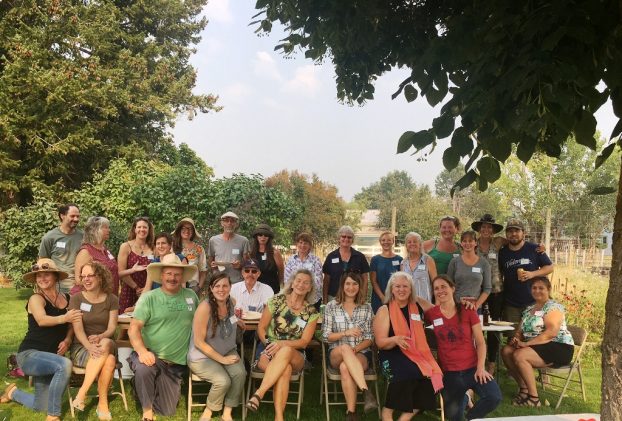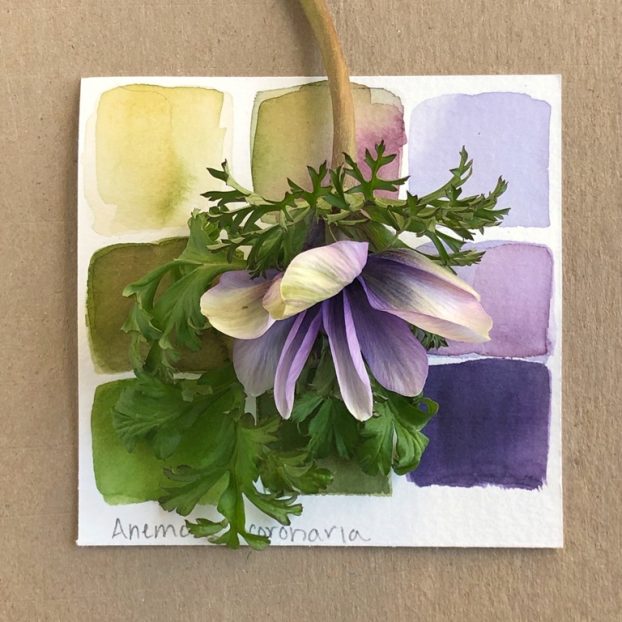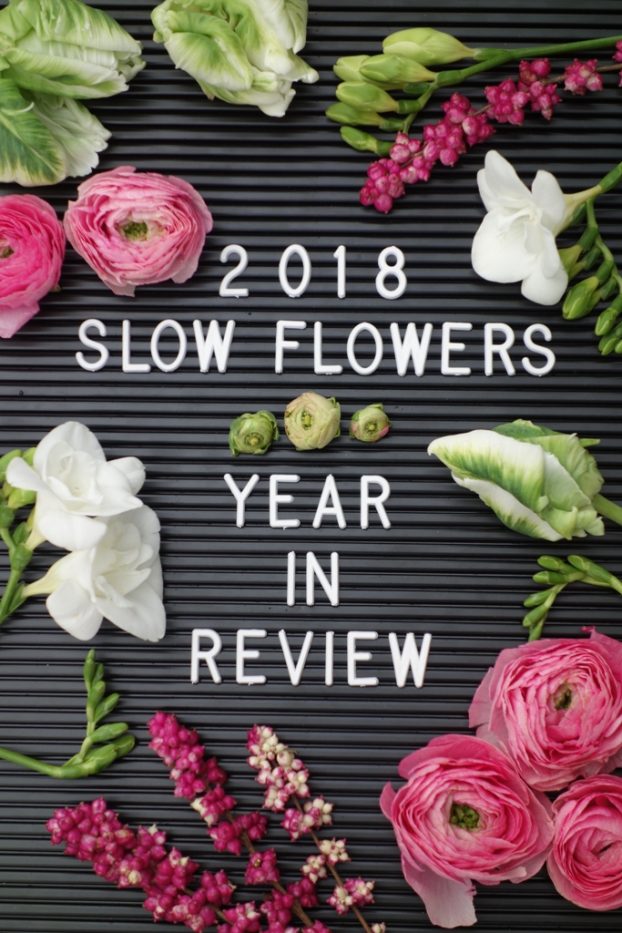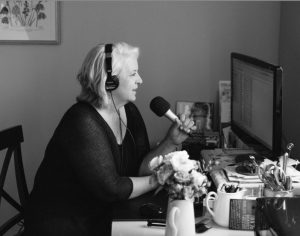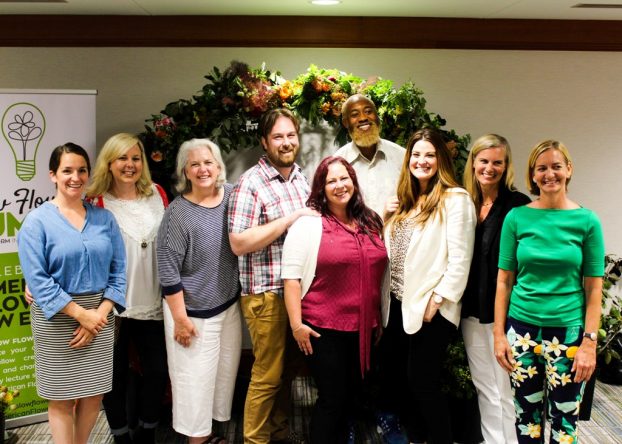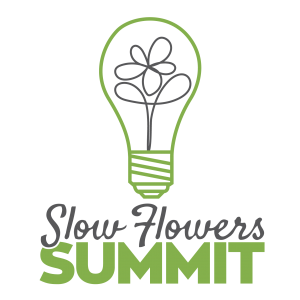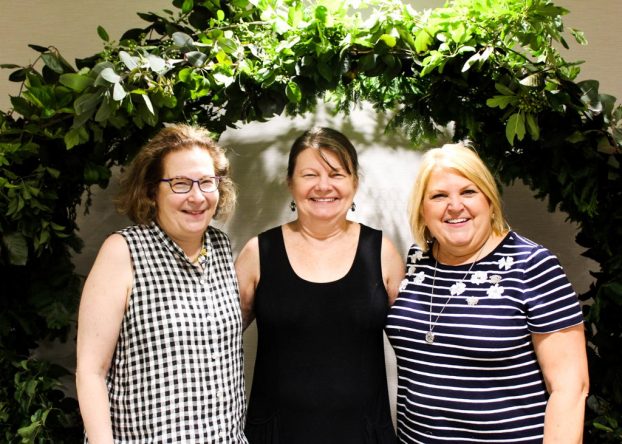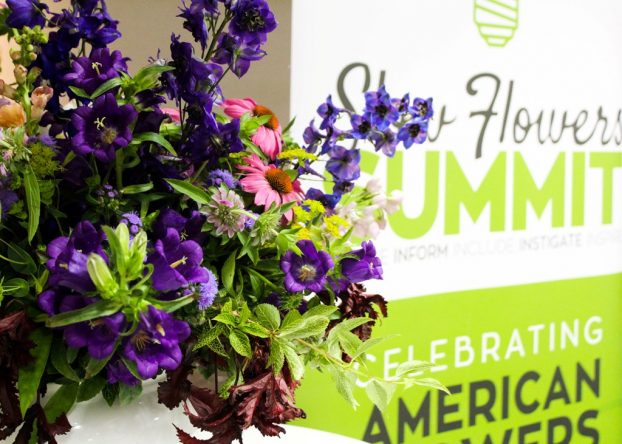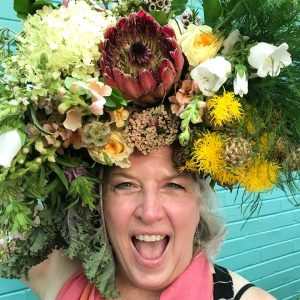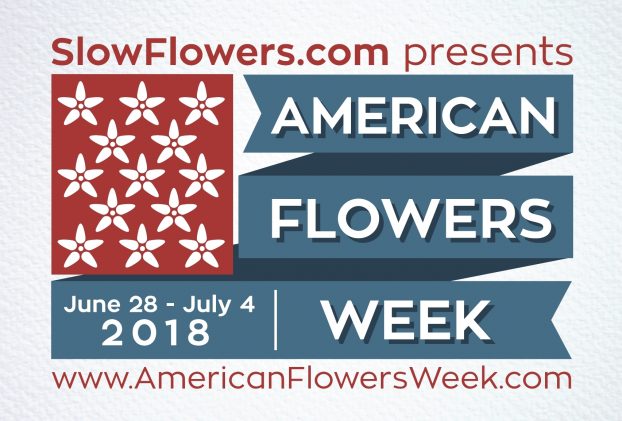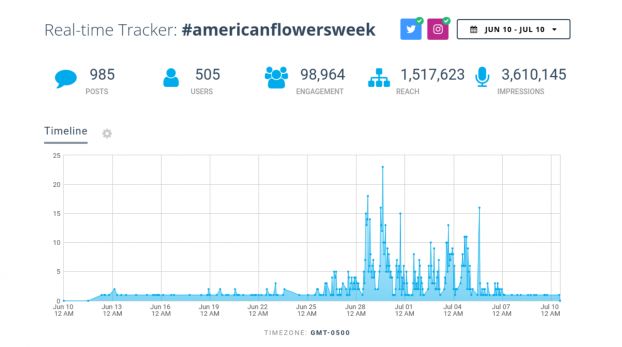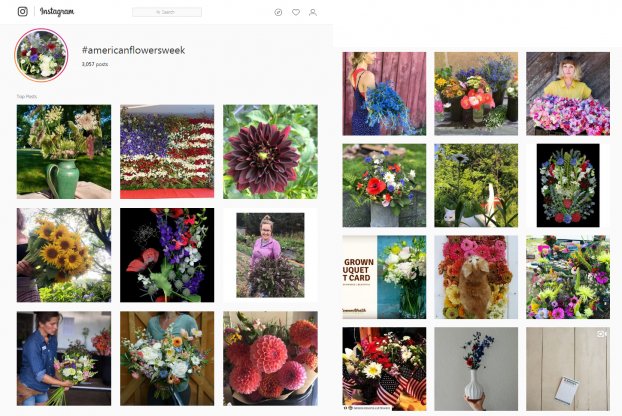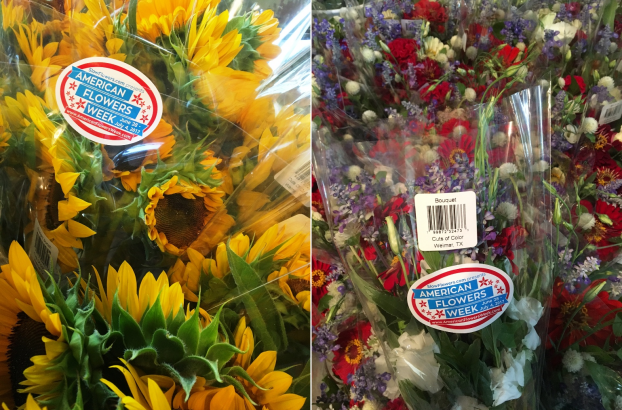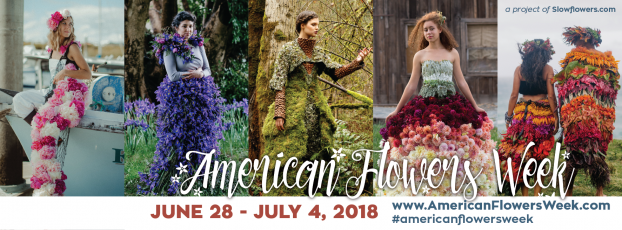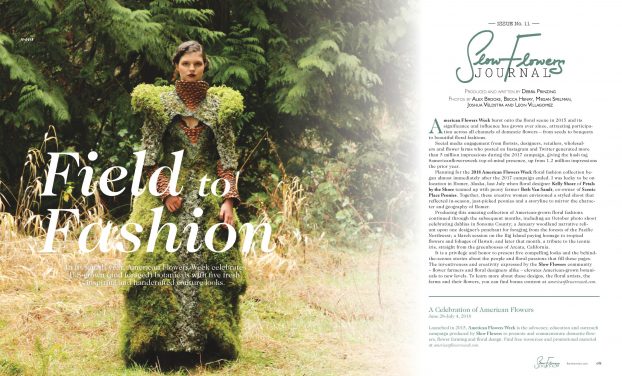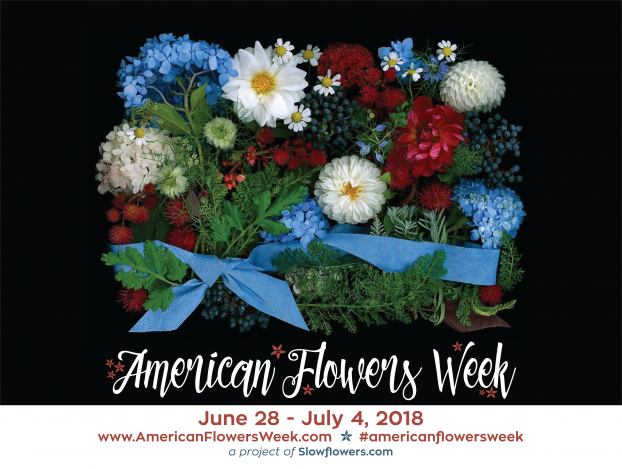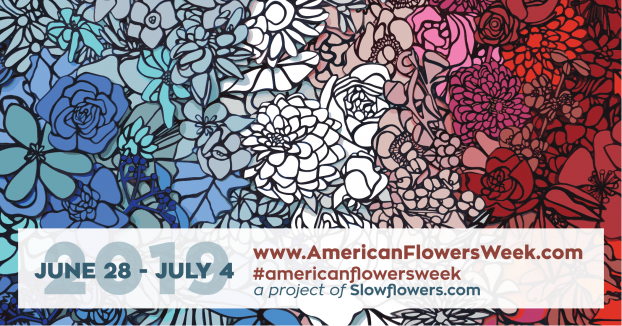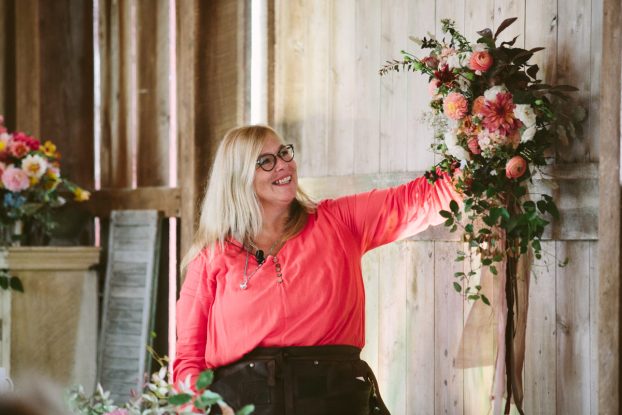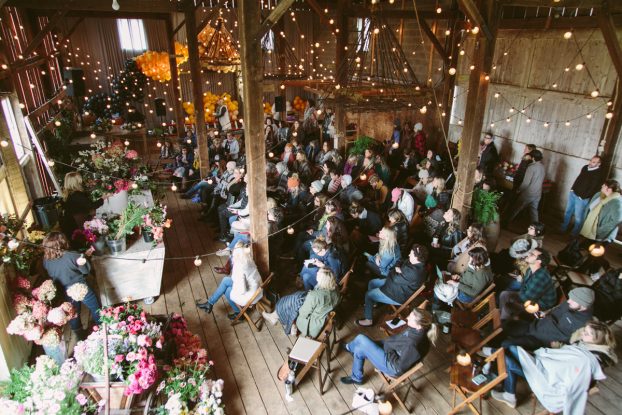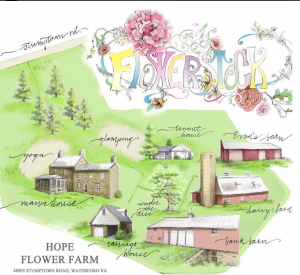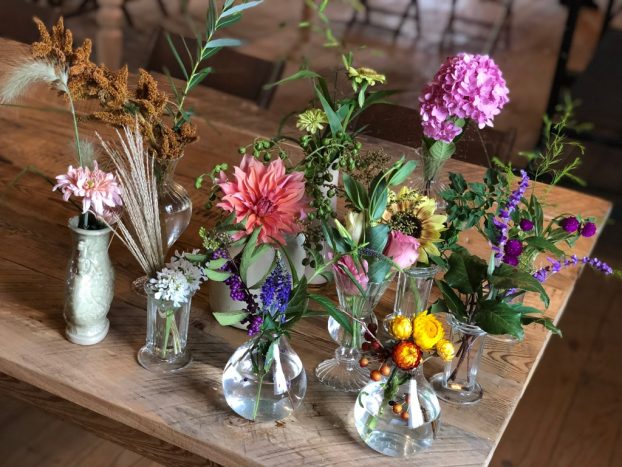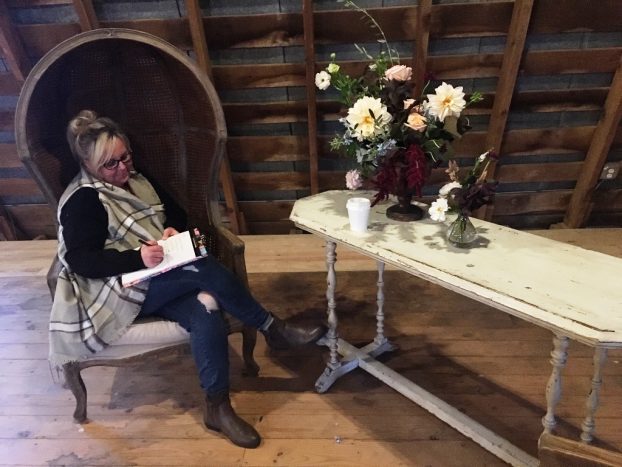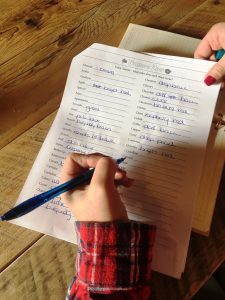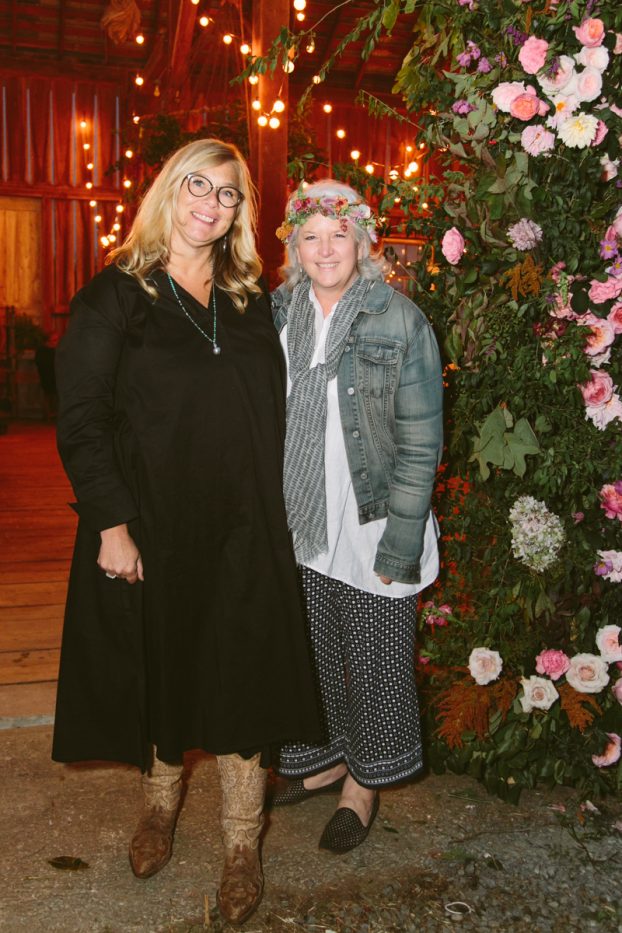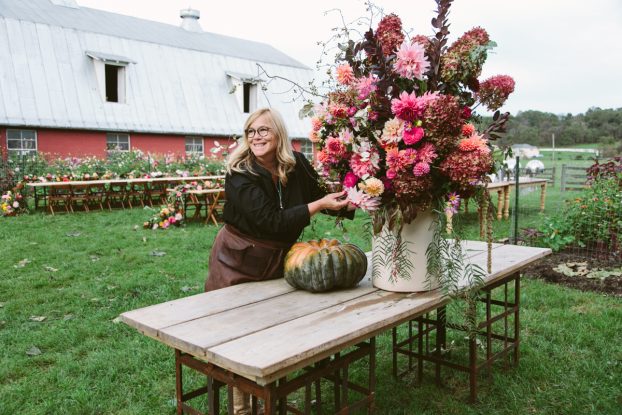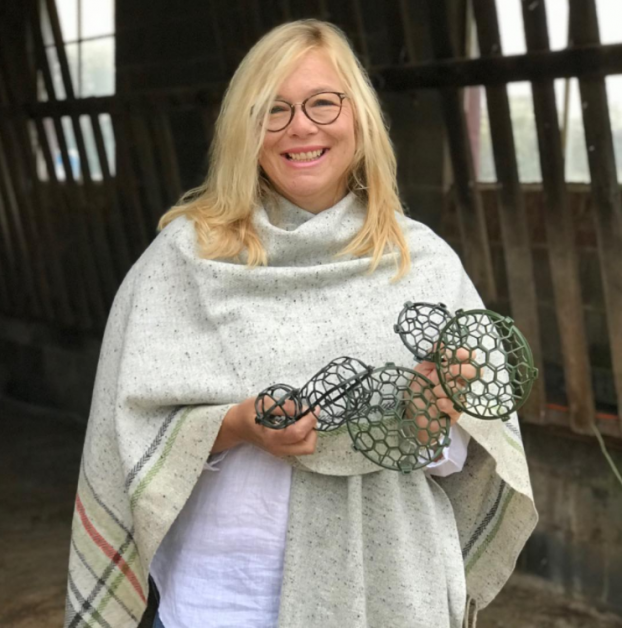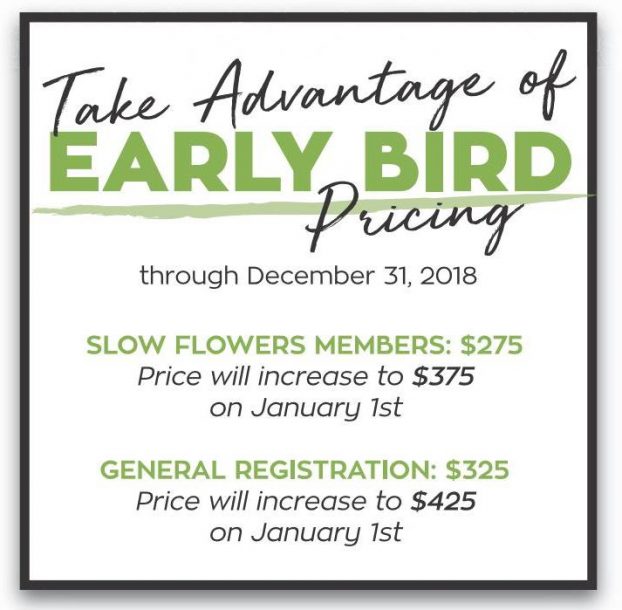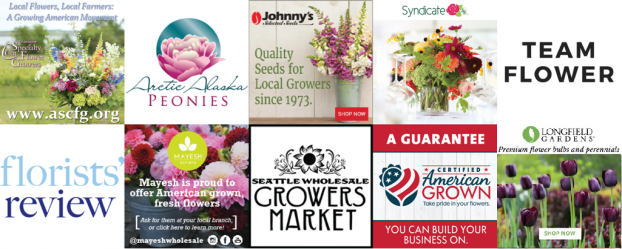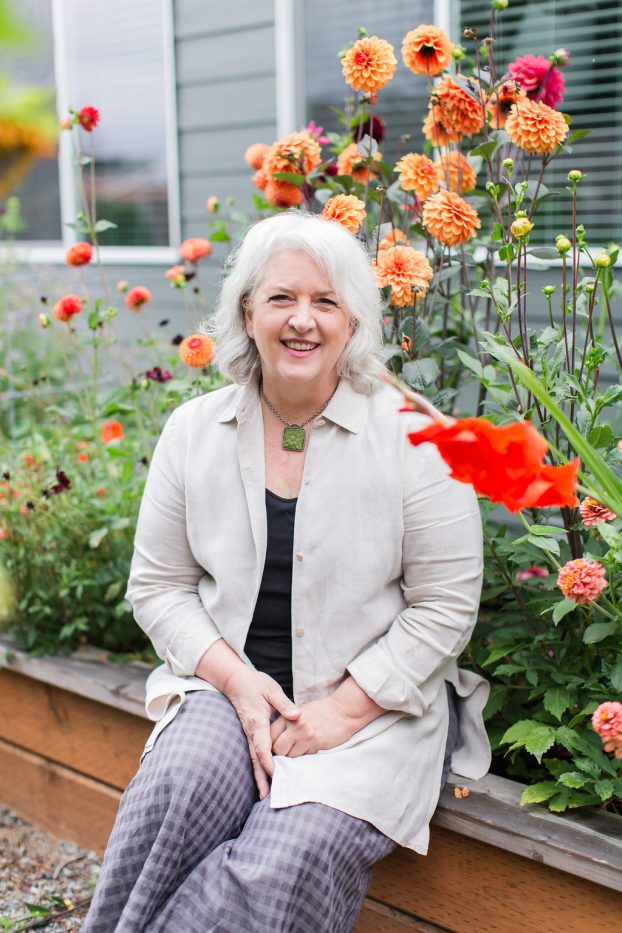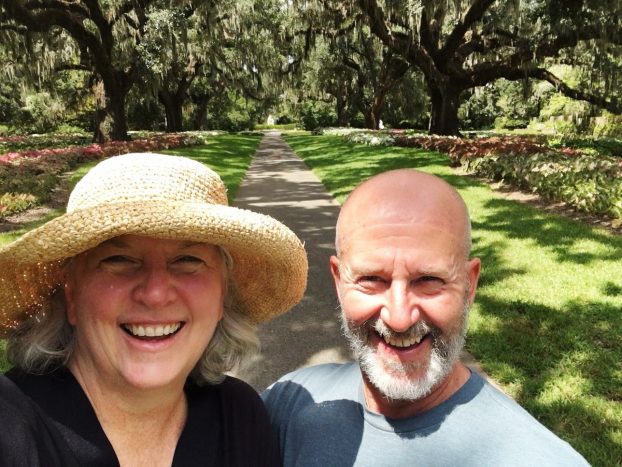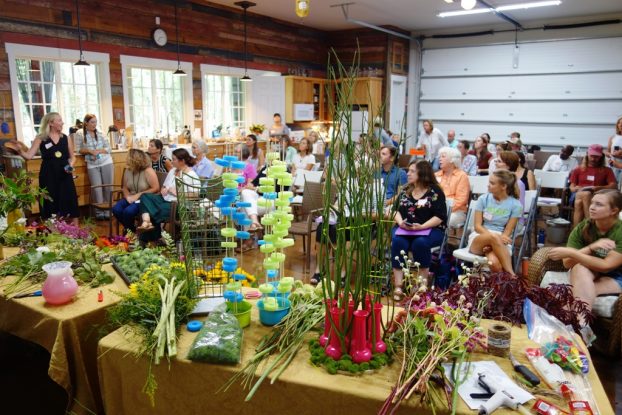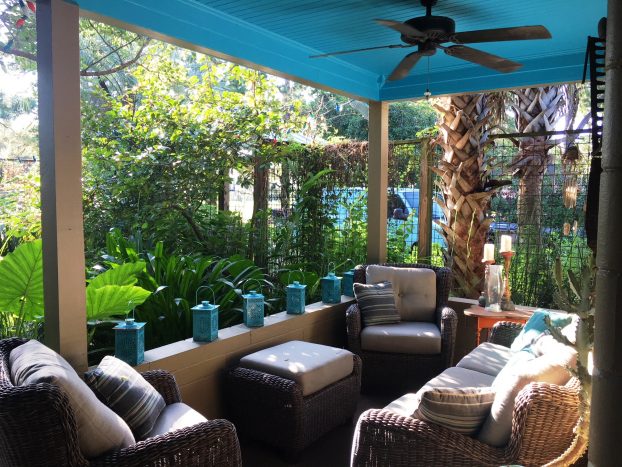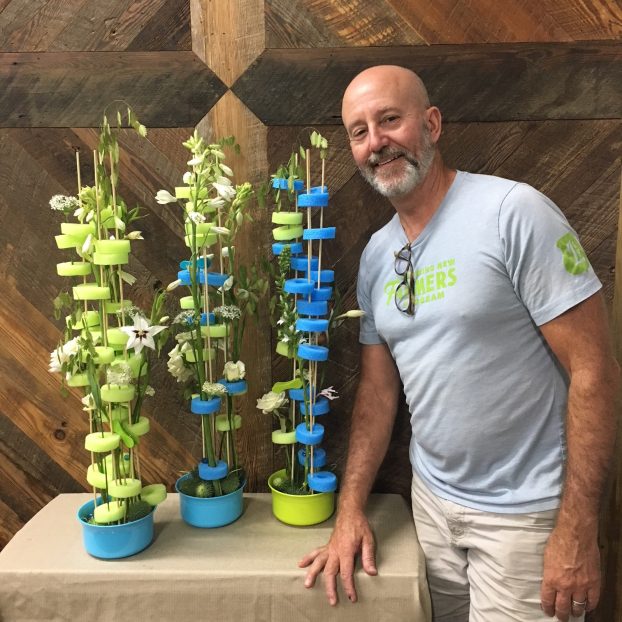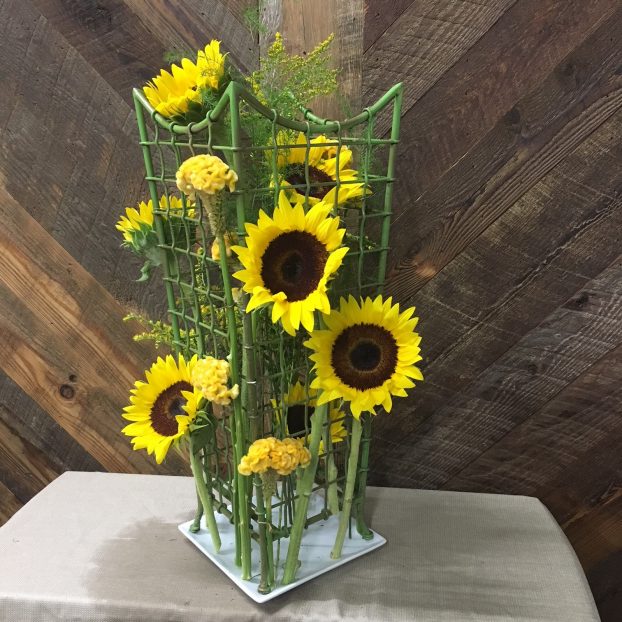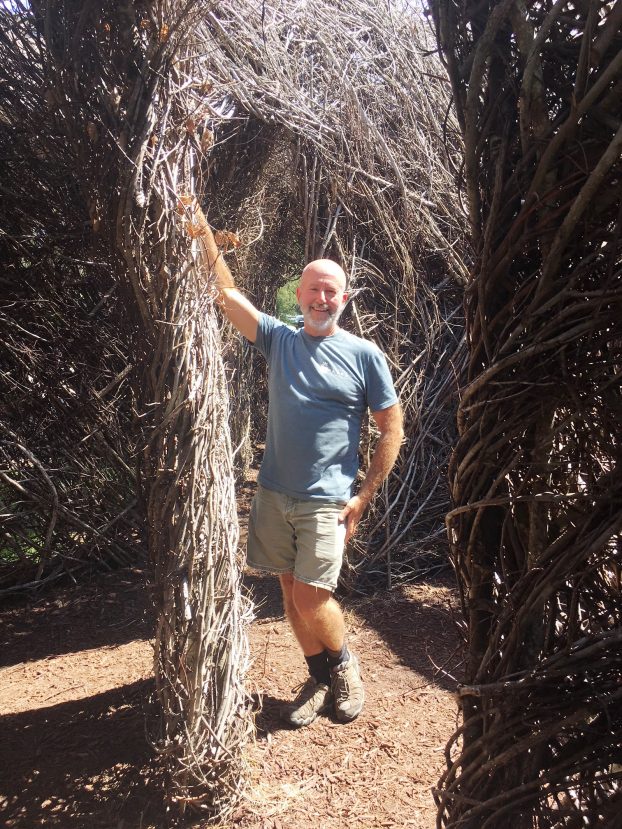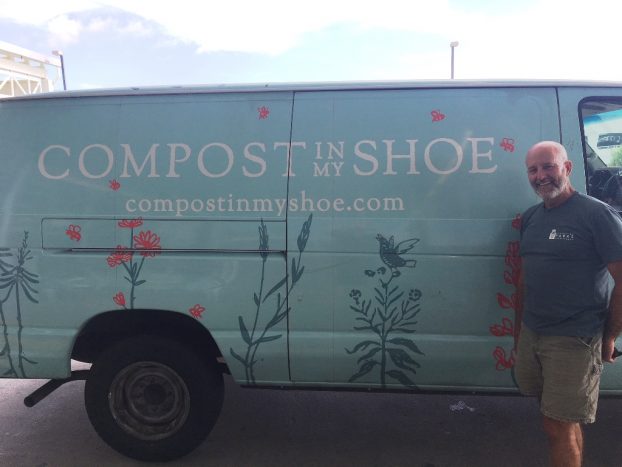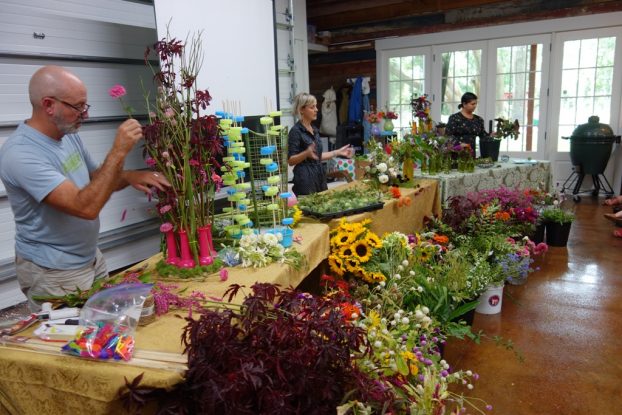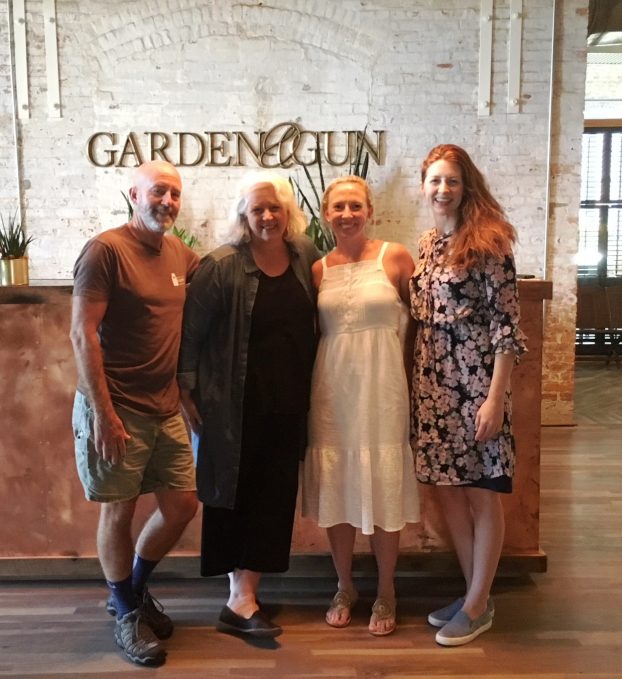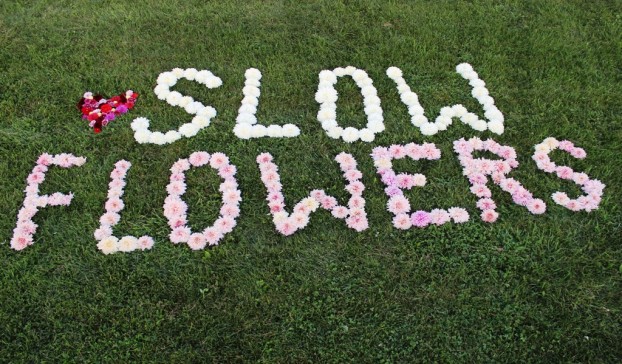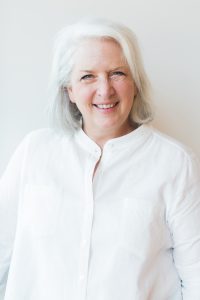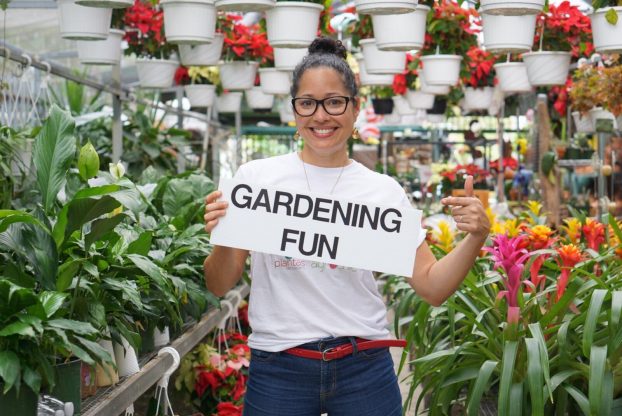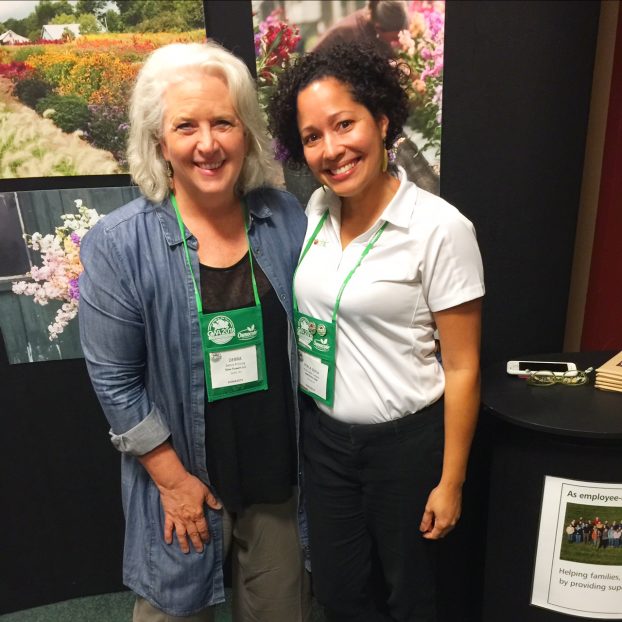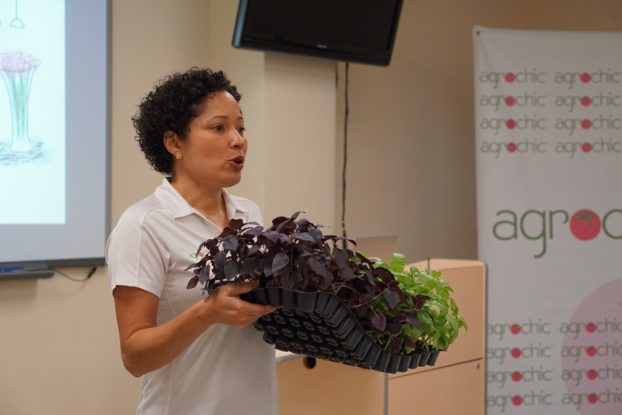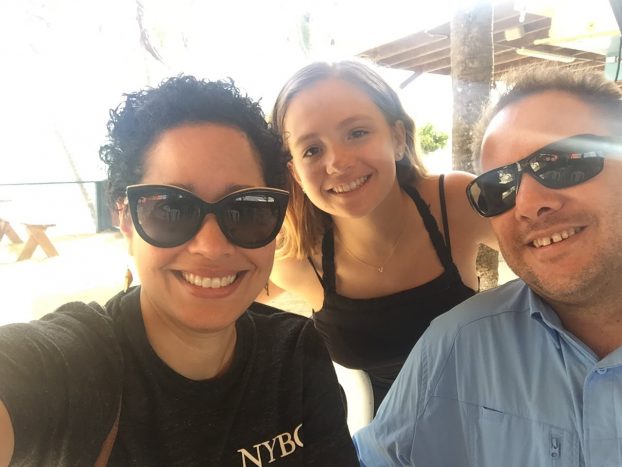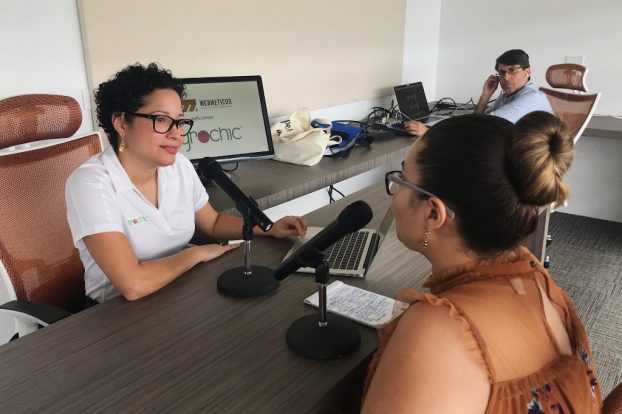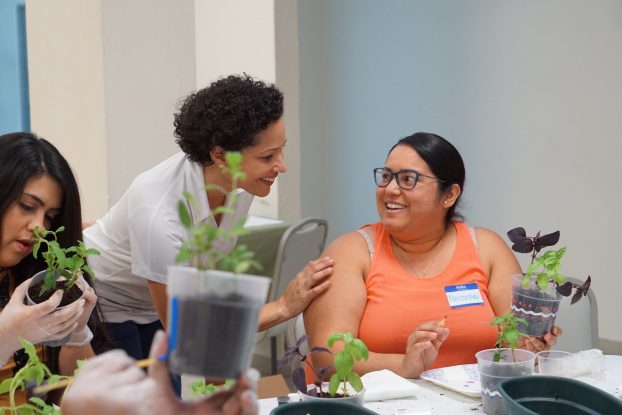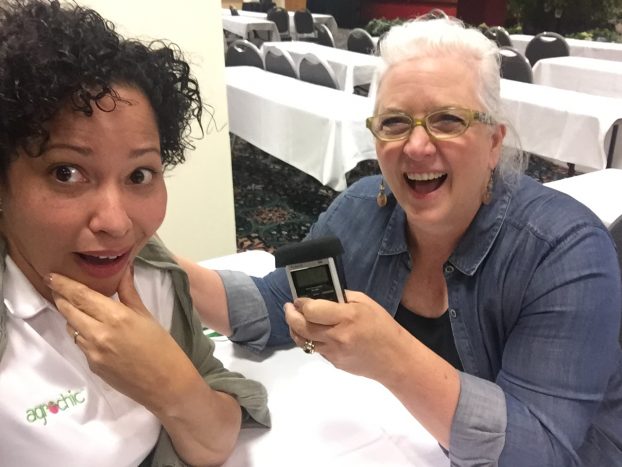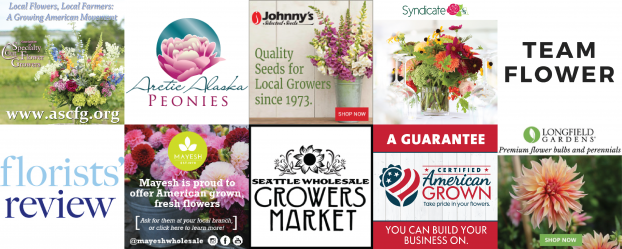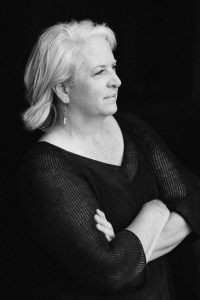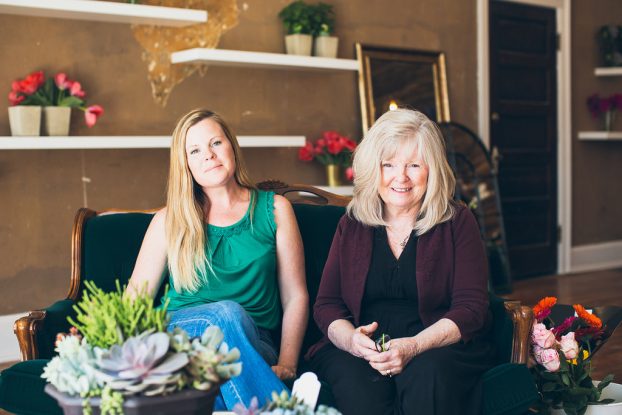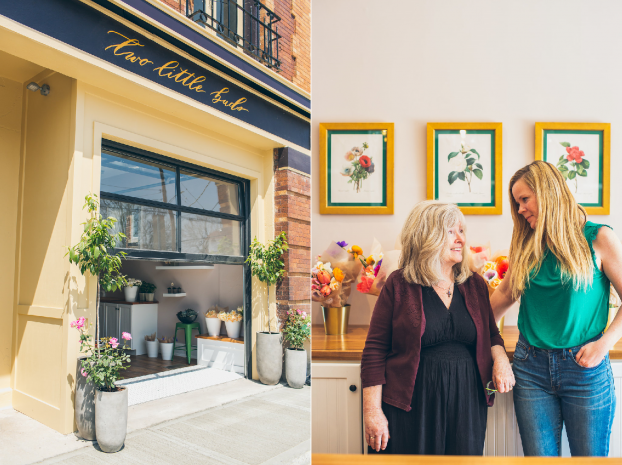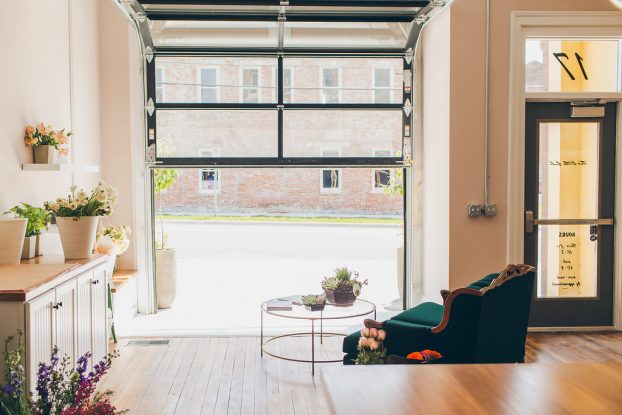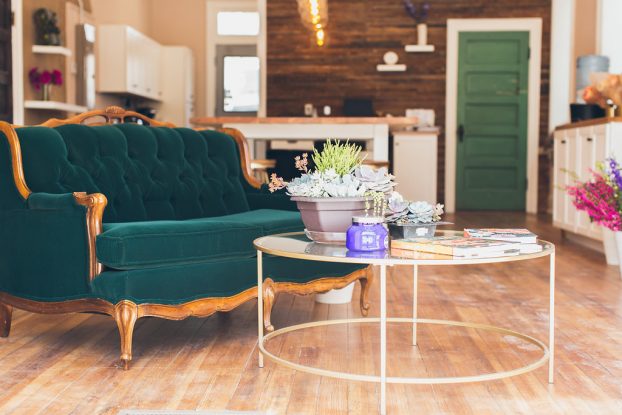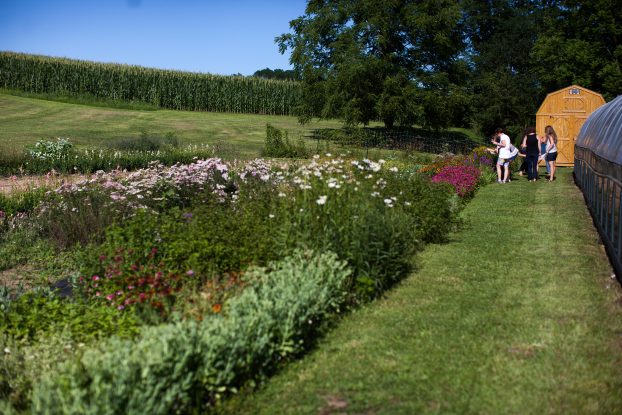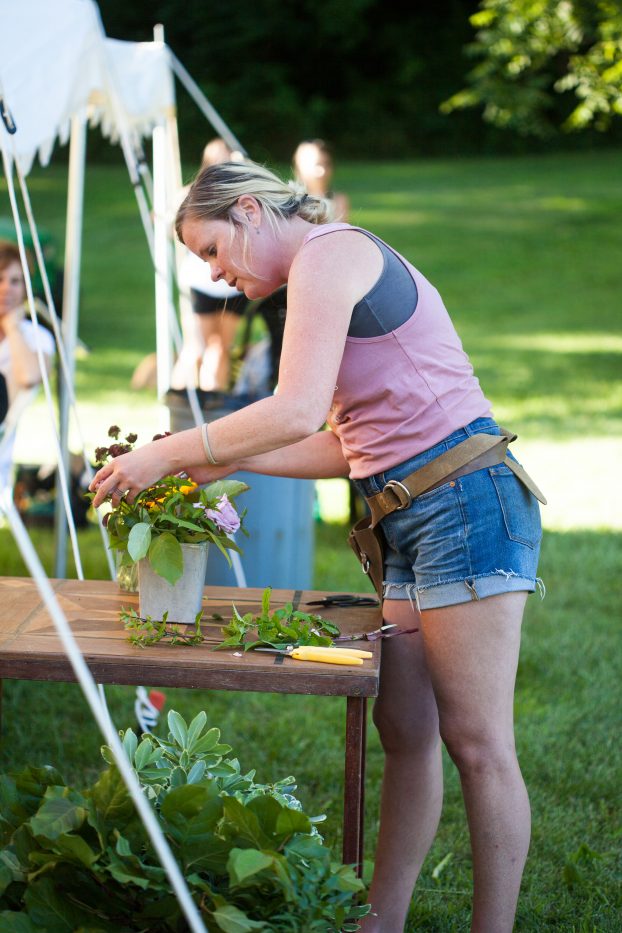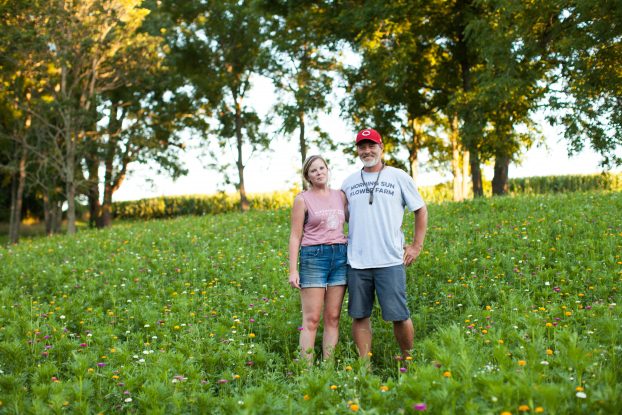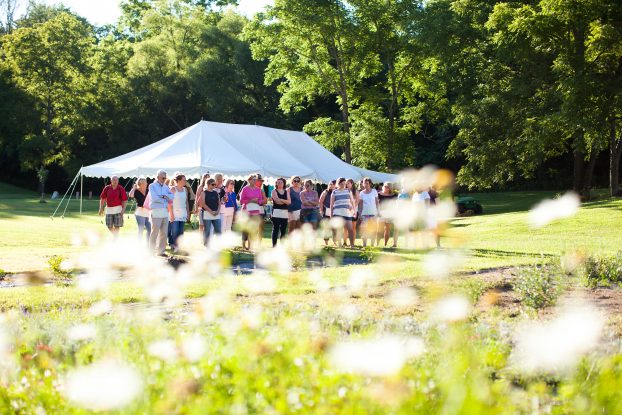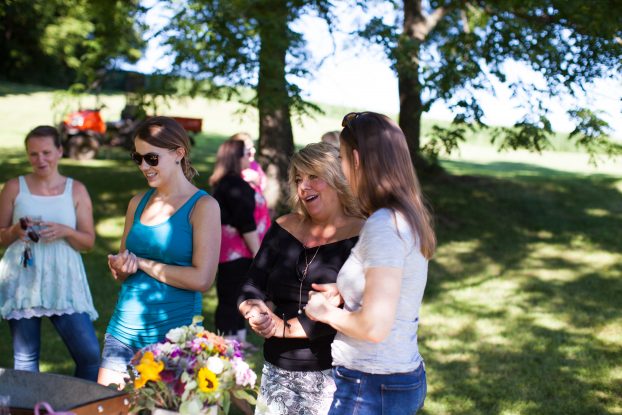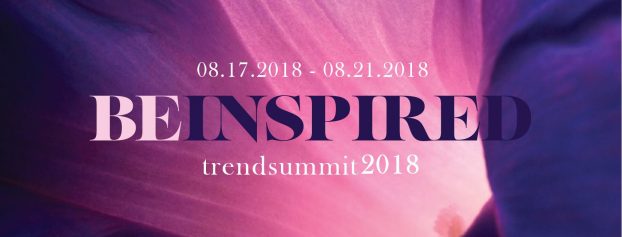Podcast: Play in new window | Download
Subscribe: Apple Podcasts | Podcast Index | RSS | More
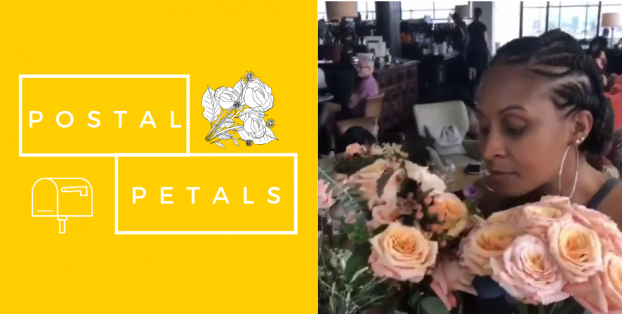
I met today’s guest, Talia Boone, when two other Slow Flowers members reached out to tell me about her and her new floral venture. As soon as I learned about Talia and her Los Angeles-based company Postal Petals, I thought — “we need her to join Slow Flowers” because her mission is i100% alignment with ours. Thank you to Yoni Levenbach of Flowers Without Borders and Whit McClure of Whit Hazen, who separately connected me with Talia earlier this summer.
Talia is a veteran marketing, communications and branding strategist whose background is in professional sports and entertainment. About three years ago, she formed INTER:SECT, a creative, tactical solutions agency that serves as a catalyst for pioneering ideas, collaboration and creative opportunities at the intersection of sports, business, technology, consciousness, culture and the arts, with the goal of promoting socially and culturally relevant conversations and collective action.
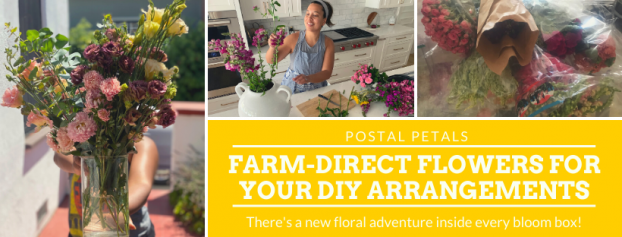
Up until now, Talia’s focus has been the intersection of sports, business, culture and social impact. And now, FLOWERS. Her new business, Postal Petals, has a social impact mission and I’m excited to share her story in our conversation today. Talia is a self-described floral enthusiast and DIY floral arranger. Since she’s based in Los Angeles, she often shopped at the Los Angeles Flower Market during public hours, bringing home flowers to arrange and enjoy — as part of her personal creativity and mental health practice.
You’ll hear how COVID is to blame for Talia’s newest venture, provoked by the closure of the Los Angeles Flower Market and her search for farm-direct flowers to fill her flower fix.
Postal Petals’ origins began with that search. Launched online in September, here’s how Postal Petals is described: Think of us as a farm-to-table produce box, but for fresh flowers! Postal Petals connects flower lovers directly to farms to receive fresh flowers at a competitive price point when compared to the retail marketplace. Each stem is handpicked and cut just hours before they are carefully packaged and shipped to you for delivery within 36 hours of harvest, ensuring quality and freshness. Once you open your Petal Box, you can build those beautiful loose blooms into stunning arrangements with a quick video tutorial or virtual hands-on workshop with one of our professional florists. Each Petal Box includes vibrant flowers sourced domestically from eco-friendly farms. From calla lilies to cheery sunflowers to picturesque peonies, there’s a new floral adventure inside every Postal Petals box.
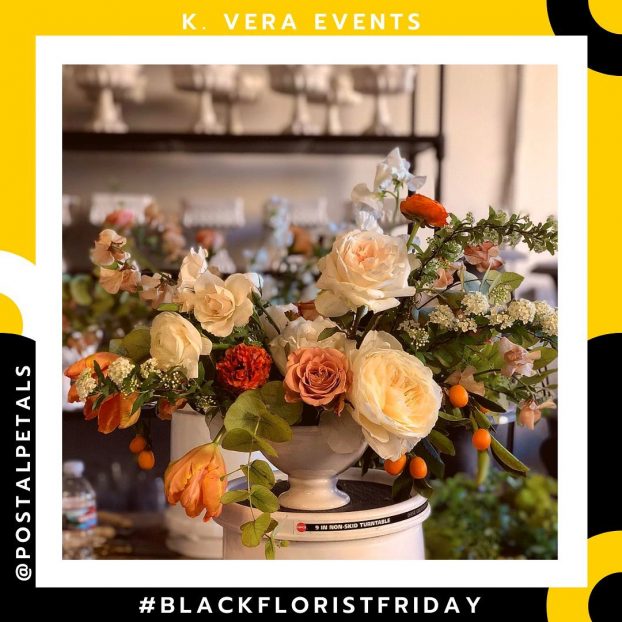
Follow Postal Petals at these social places:
Postal Petals’ #blackfloristfriday series on Instagram — it’s a wonderful addition to the floral community.
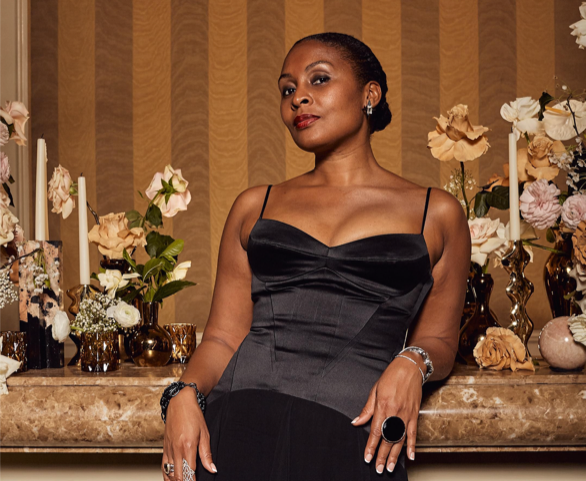
Thanks so much for joining us today. There is so much inspiration packed into a conversation with Talia Boone! I jotted down one of her references, and it’s worth restating here: If you want to go fast, to alone; if you want to go far, go together. That is the true message of Slow Flowers and for everyone who is part of our community!
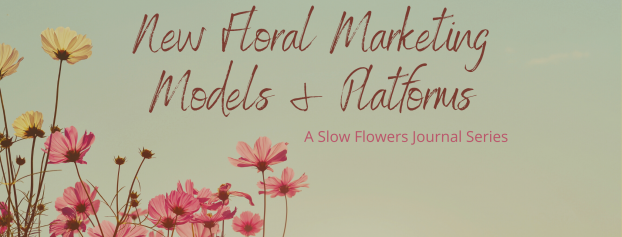
As I mentioned, you can read more about Talia in today’s show notes. Today we also posted a feature story about Postal Petals in Slow Flowers Journal — that’s at slowflowersjournal.com. Earlier this week, we started a six-part editorial series called New Floral Marketing Models & Platforms, beginning with Amelia Ihlo of Rooted Farmers on Monday and Rachel Heath of Flora Fun Box yesterday. After today’s feature on Postal Petals, the series continues for three more days as we profile: American Grown at Home, a project of Kelly Shore and Petals by the Shore; Zap Bloom, Sally Vander Wyst’s new venture, and Tammy Meyers of LORABloom. I know this series will interest you because there’s inspiration for flower farmers, florists and designers to consider diversification in their own enterprises. And, I am pretty sure this series will prompt others to reach out and let me know who they are and tell me about their new models!
Okay, whew. Does October seem like the year’s busiest month so far? I feel it and you might, too. Flowers are still blooming in my garden – so far! Our expected first-frost date won’t come for another few weeks. One flower farmer recently told me that October 15th is his “frost date,” whether the thermometer is down to freezing or not. He’s ready for a break and I don’t blame him. The zeitgeist of anticipation in our lives is undeniable, and some (maybe most) of it comes with a side order of anxiety. How do we move forward with so much uncertainty? Taking positive action is sometimes the best antidote to that feeling.
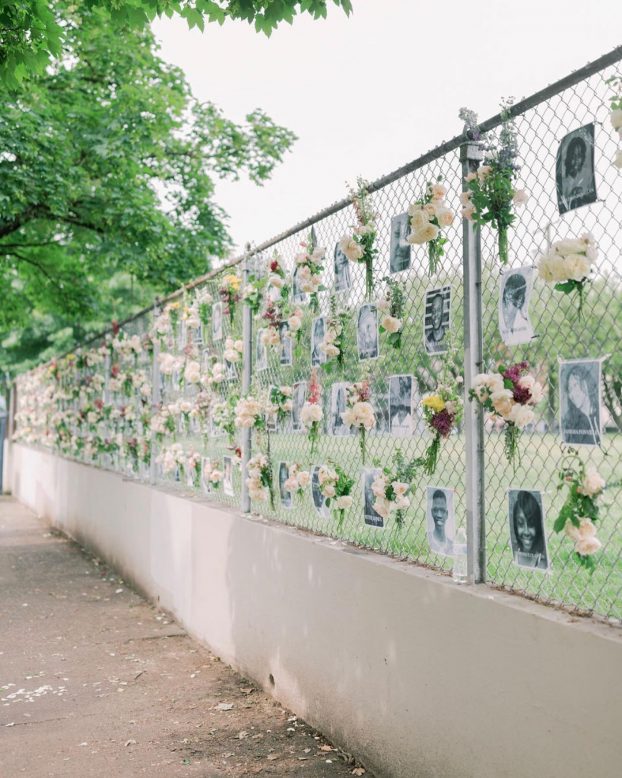
To that end, I’m thrilled to share that next week on October 20th, our friend Karen Thornton of Avenue 22 Events is leading the installation of a new Say Their Names Memorial in Kirkland, Washington, a suburb of Seattle. Karen is Slow Flowers’ operations and special events manager — many of you have met her during our regular Zoom Meet-Ups or in-person at the past two Slow Flowers Summits. Karen also recently took over Slow Flowers membership management from Lisa Waud, who has taken a step back for other important projects.
I want to let you know about the Say Their Names Memorial because it continues the good work of Portland-based wedding and event designer Joy Proctor, who began the memorial on Juneteenth when she and others mounted black-and-white portraits of more than 200 Black women and men whose lives were lost due to racial injustice. Flowers play a role in the powerful and sobering gallery of faces and names, as each portrait is commemorated with a small bouquet.
Slow Flowers and several of our member florists and farmers are supporting the October 20th installation. Here is Karen’s Go Fund Me link and I invite you to contribute, and provide support.
More announcements
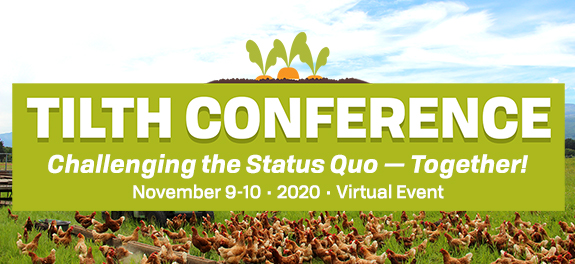
Before we get started, I want to announce the winner of our 2020 Tilth Conference registration giveaway, announced last week. I asked you to post a comment in last week’s show notes to tell us the one thing you are doing in your floral enterprise to address climate change. Our winner, Aishah Lurry, past guest of this podcast, commented: Patagonia Flower Farm is located in the high desert of Arizona; when we first started thinking about flower farming, the most important thing to us was water conservation. We have found that using landscape fabric slows down evaporation and has allowed us to use a minimal amount of water. It does this by blocking the sunlight In turn keeping the soil moist for a much longer period of time. Thanks for the great comment — and congratulations, Aishah! You’ll be attending – virtually – the 2020 Tilth organic farming conference on November 9 & 10! I’ll send you all the details for your complimentary registration.
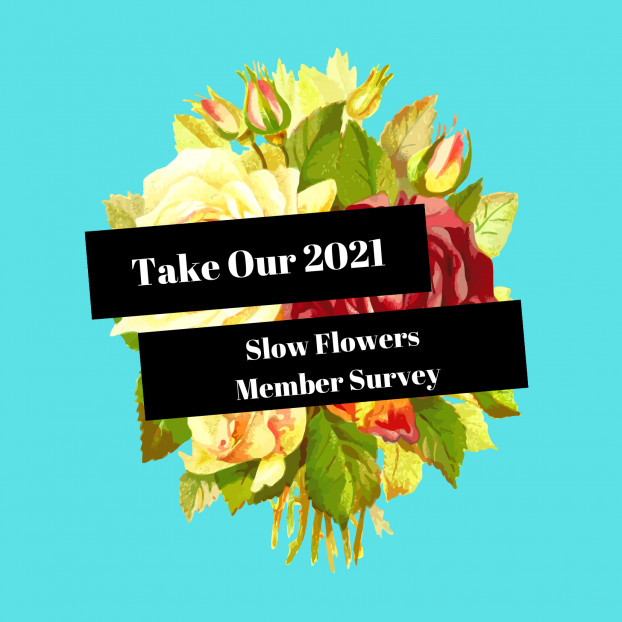
First, there’s still time to complete the 2021 Slow Flowers Member Survey!
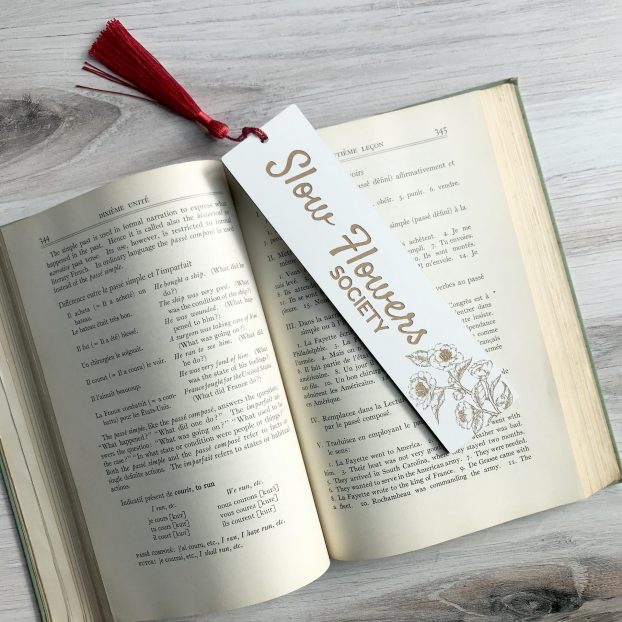
To thank you for sharing your time to take the survey, we’d like to send you an etched Slow Flowers Society botanical bookmark – and enter your name into the drawing for one free registration to the 2021 Slow Flowers Summit, valued at $599! But you must give us your name and contact information to receive the bookmark and enter the drawing — if you choose to respond anonymously, we can’t bestow our gifts!

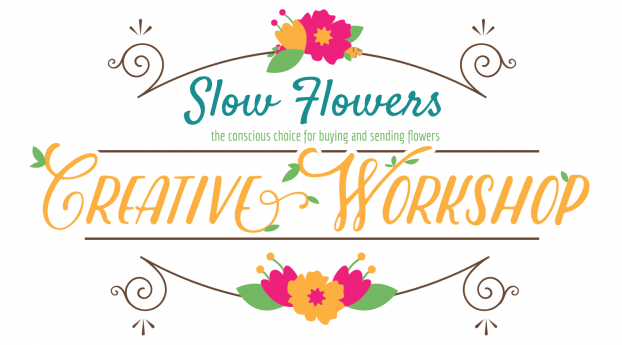
Tomorrow, October 15th, registration begins for my first online course, Slow Flowers Creative Workshop: Floral Storytelling. You can learn more details and watch a video message from me here. The course begins November 1st so check out link above and take advantage of the $200 off introductory promo code — SF97 –, meaning you can enjoy this course for just $97. It includes three modules, 11 lessons, six worksheets and three writing templates. I’m excited to see you in the course!
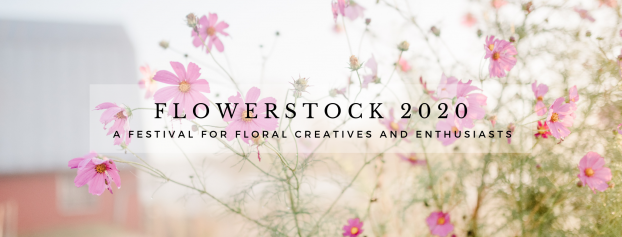
On Friday, October 16th, the 2020 Flowerstock, Virtual Edition launches. A combination of live presentations and pre-recorded presentations from a wide range of florists, designers, and more, Flowerstock is the brainchild of our friend and Slow Flowers member Holly Chapple. I’ve developed new module for my session “A Bouquet of Words,” recorded specifically for Flowerstock attendees. Follow this link to see the full program and register for just $297.

From Sunday, October 25th to Wednesday, October 28th, I’ll return to Fleurvana, a virtual floral conference that first took place in late August. Fleurvana Holiday Summit follows much of the same format, but has all new presentations and a combination of new and returning speakers. I’ve developed an entirely new presentation called Taking Stock: Writing your 2020 Year in Review & 2021 Forecast with Creative Intention. As with last time, you can register for a free pass to attend Fleurvana during October 26-28. And you can purchase a VIP Pass to access private speaker roundtables and watch the presentations at your own pace.
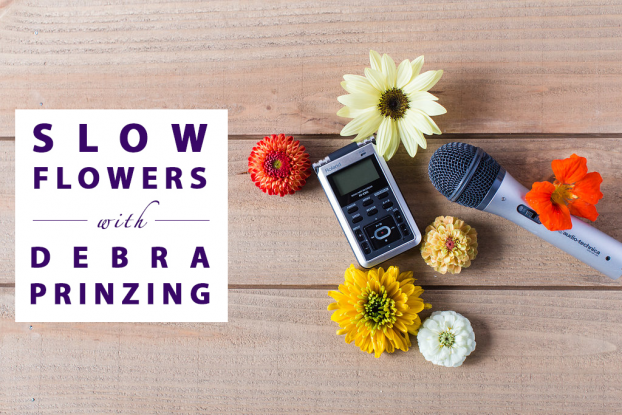
The Slow Flowers Podcast has been downloaded more than 649,000 times by listeners like you. Thank you for listening, commenting and sharing – it means so much.
As our movement gains more supporters and more passionate participants who believe in the importance of the American cut flower industry, the momentum is contagious. I know you feel it, too. I value your support and invite you to show your thanks and with a donation to support my ongoing advocacy, education and outreach activities. You can find the donate button in the column to the right.
Thank you to our sponsors
This podcast is brought to you by Slowflowers.com, the free, nationwide online directory to florists, shops, and studios who design with American-grown flowers and to the farms that grow those blooms. It’s the conscious choice for buying and sending flowers.
And thank you to Florists’ Review magazine. I’m delighted to serve as Contributing Editor for Slow Flowers Journal, found in the pages of Florists’ Review. Read our stories at slowflowersjournal.com.
Syndicate Sales, an American manufacturer of vases and accessories for the professional florist. Look for the American Flag Icon to find Syndicate’s USA-made products and join the Syndicate Stars loyalty program at syndicatesales.com.
Johnny’s Selected Seeds, an employee-owned company that provides our industry the best flower, herb and vegetable seeds — supplied to farms large and small and even backyard cutting gardens like mine. Find the full catalog of flower seeds and bulbs at johnnysseeds.com. We have a new Slow Flowers article that dropped last week in Johnny’s Advantage, Johnny’s monthly newsletter. It’s all about Pricing and Profitability and features advice from five Slow Flowers growers. You’ll want to read it!
Mayesh Wholesale Florist. Family-owned since 1978, Mayesh is the premier wedding and event supplier in the U.S. and we’re thrilled to partner with Mayesh to promote local and domestic flowers, which they source from farms large and small around the U.S. Learn more at mayesh.com.
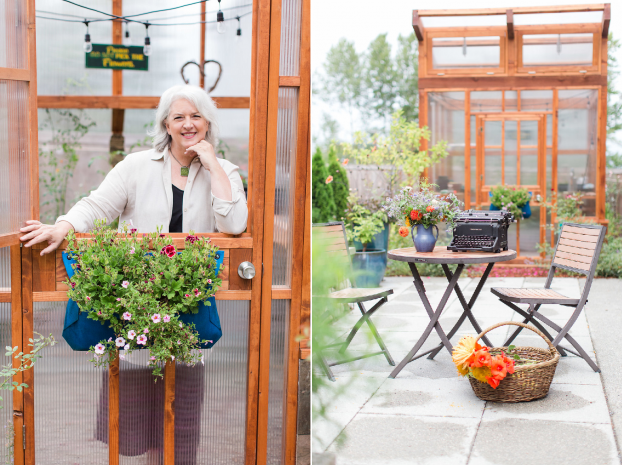
I’m Debra Prinzing, host and producer of the Slow Flowers Podcast. Next week, you’re invited to join me in putting more American grown flowers on the table, one vase at a time. And If you like what you hear, please consider logging onto iTunes and posting a listener review.
The content and opinions expressed here are either mine alone or those of my guests alone, independent of any podcast sponsor or other person, company or organization.
Music Credits:
Alustrat; Skyway; Turning on the Lights; Gaena
by Blue Dot Sessions
http://www.sessions.blue
Lovely by Tryad http://tryad.bandcamp.com/album/instrumentals
http://creativecommons.org/licenses/by-sa/3.0/
In The Field
audionautix.com









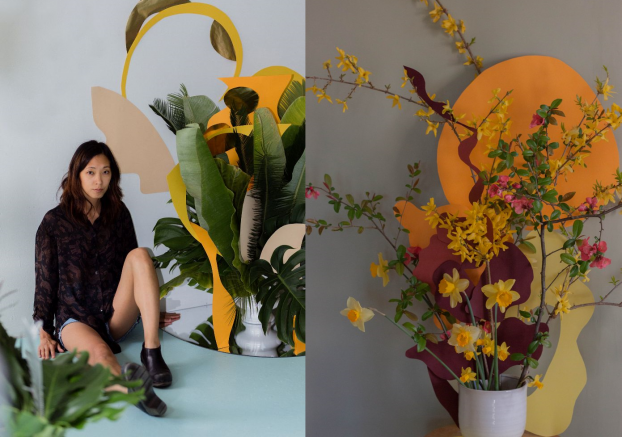
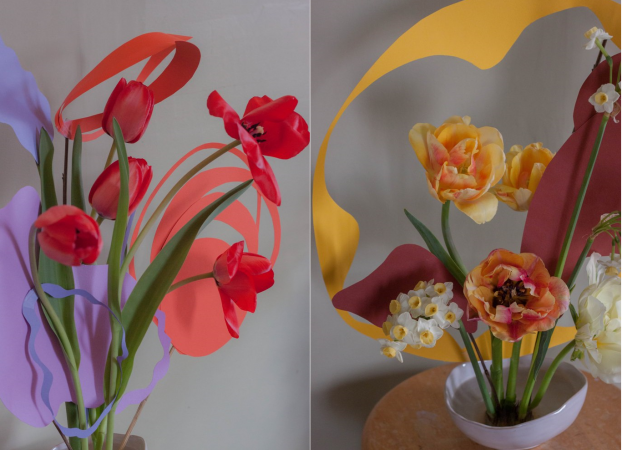
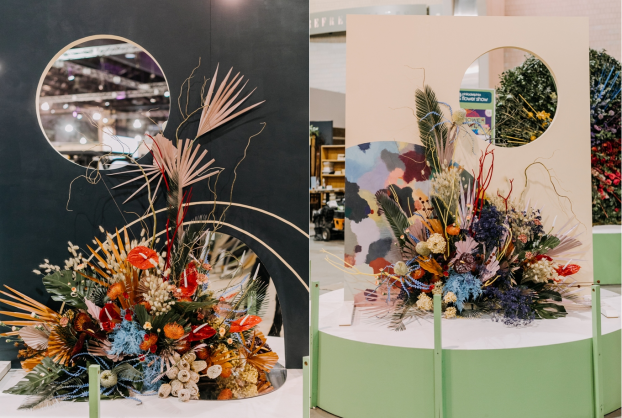
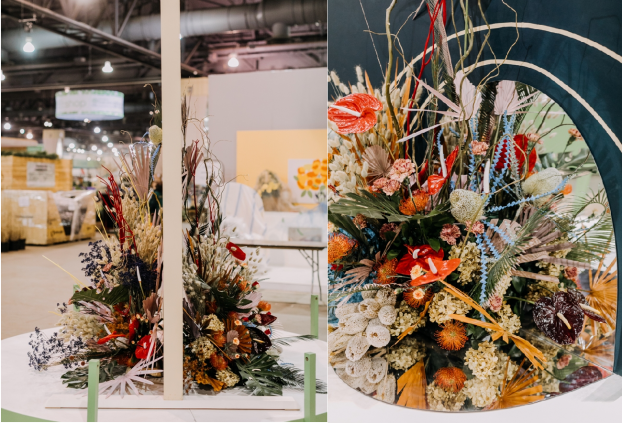
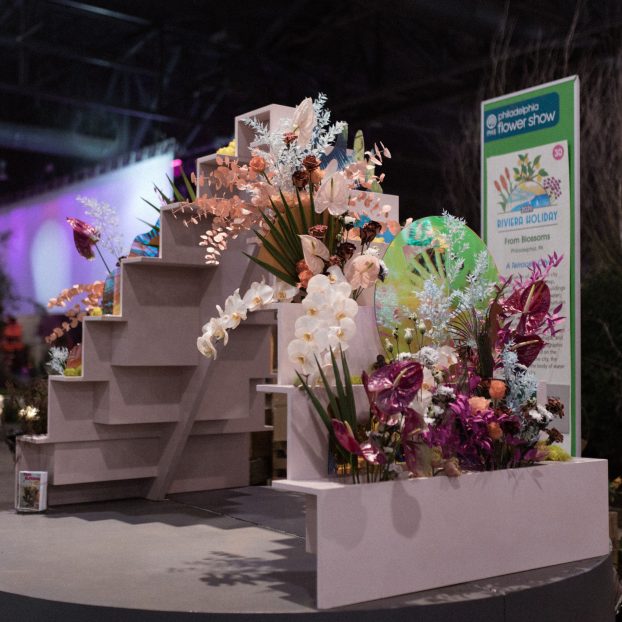
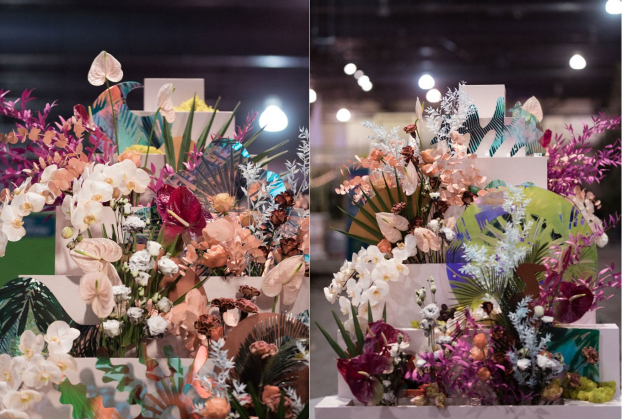
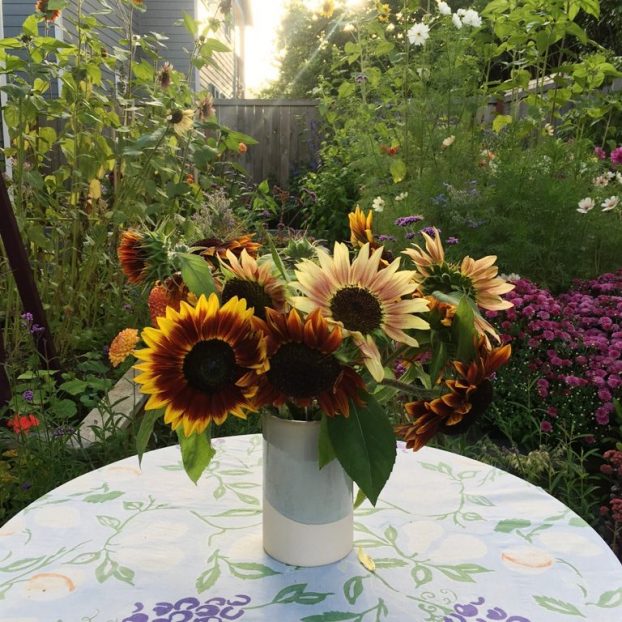
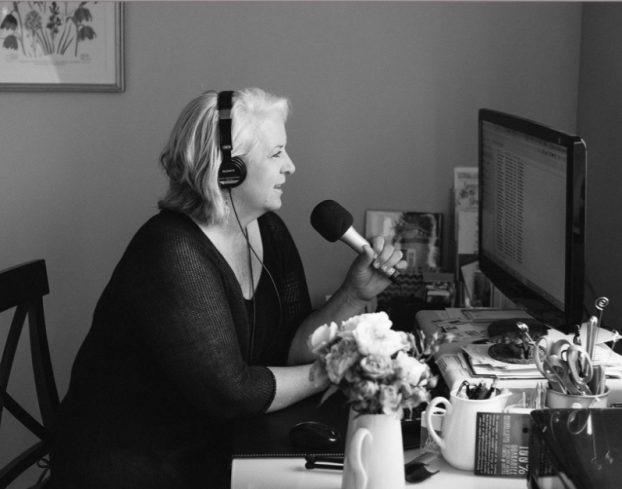
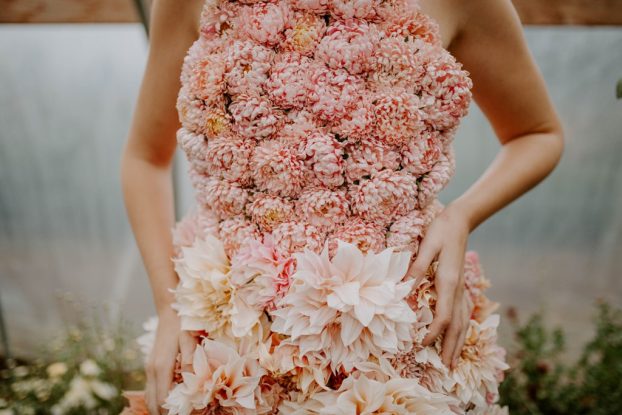
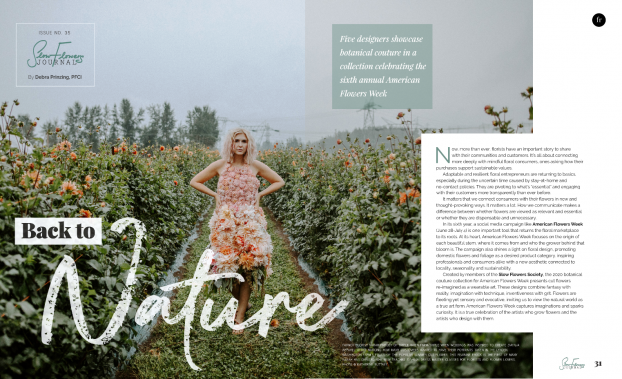
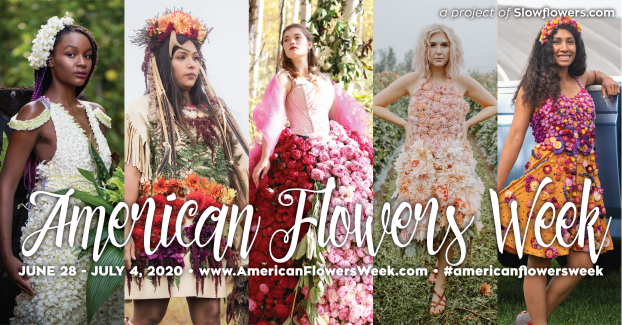
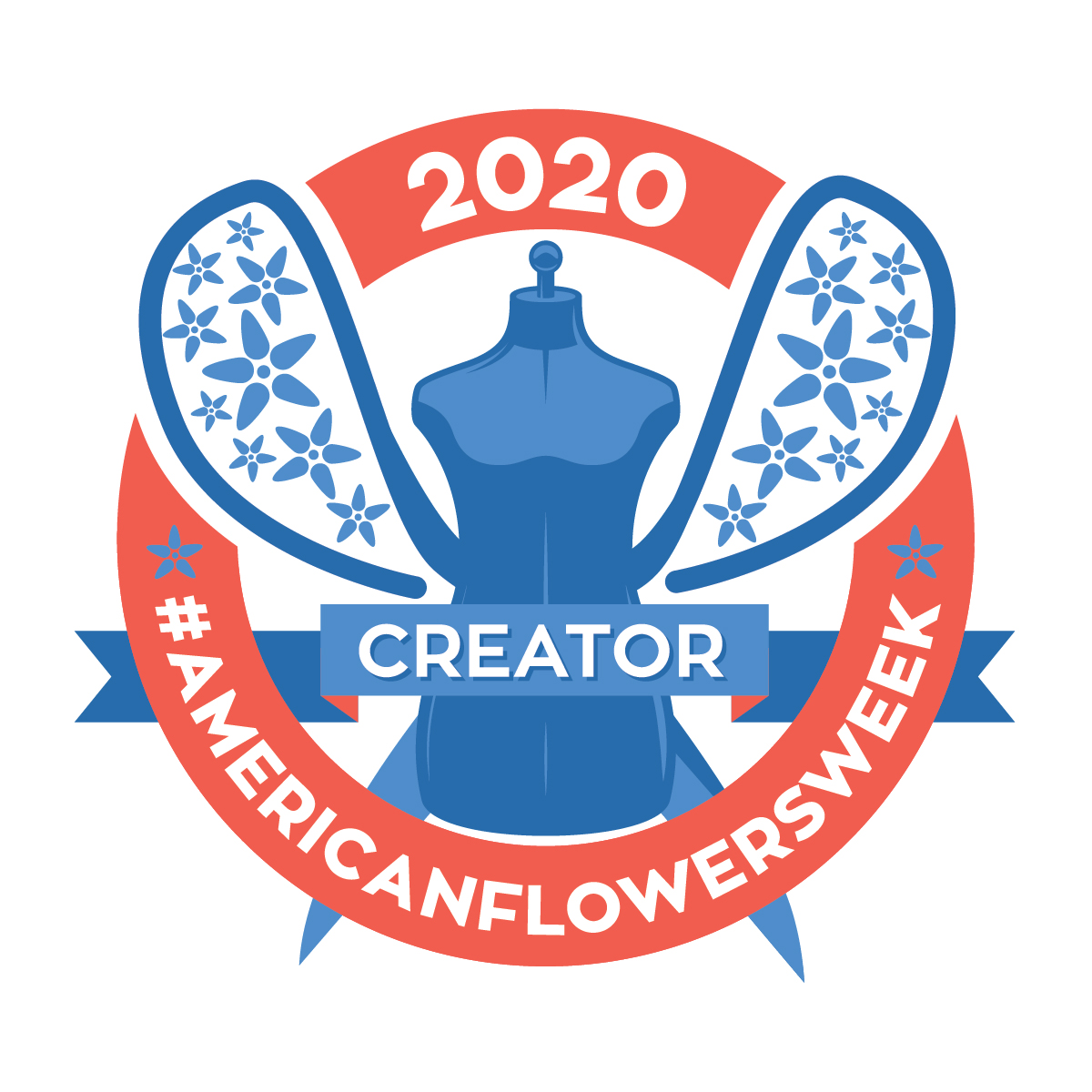 At its heart, American Flowers Week focuses on the origin of each beautiful stem, where it comes from and who is the grower behind that bloom. The campaign also shines a light on floral design, promoting domestic flowers and foliage, inspiring professionals and consumers alike with a new aesthetic connected to locality, seasonality and sustainability.
At its heart, American Flowers Week focuses on the origin of each beautiful stem, where it comes from and who is the grower behind that bloom. The campaign also shines a light on floral design, promoting domestic flowers and foliage, inspiring professionals and consumers alike with a new aesthetic connected to locality, seasonality and sustainability.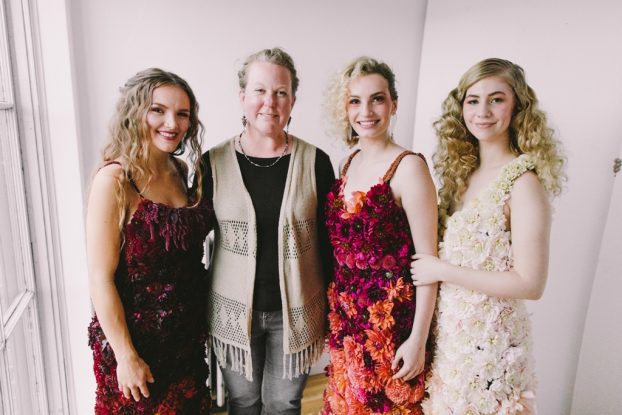
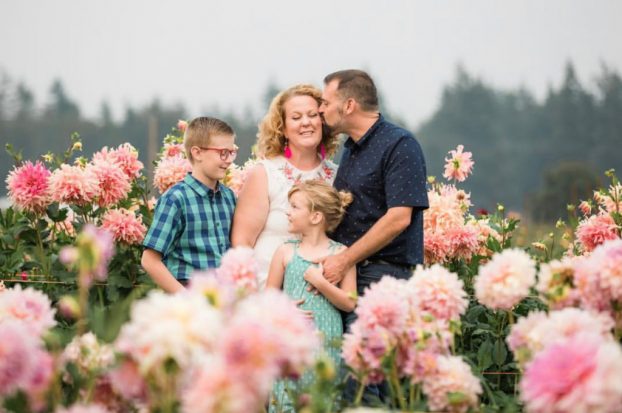
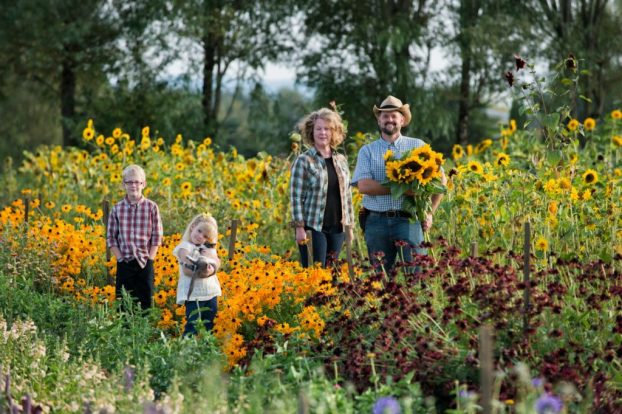
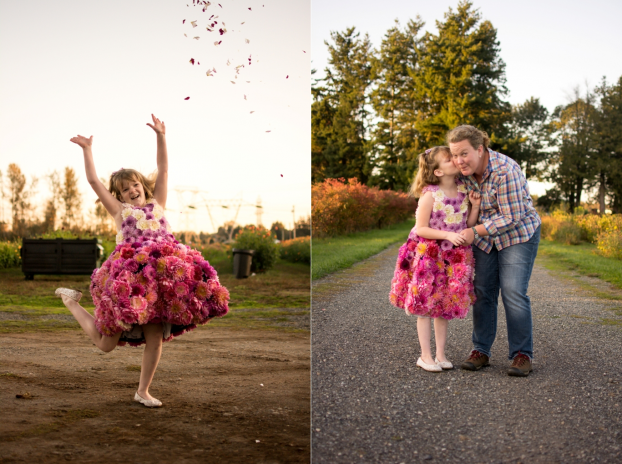
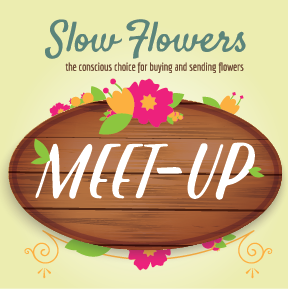 On June 12th, we will hold our monthly Slow Flowers Member Virtual Meet-Up — an online gathering of florists, growers, farmer-florists and supporters, launched in late March. The Virtual Meet-Ups have moved from weekly to monthly and will now continue as a regular event on the 2nd Friday of each month.
On June 12th, we will hold our monthly Slow Flowers Member Virtual Meet-Up — an online gathering of florists, growers, farmer-florists and supporters, launched in late March. The Virtual Meet-Ups have moved from weekly to monthly and will now continue as a regular event on the 2nd Friday of each month. 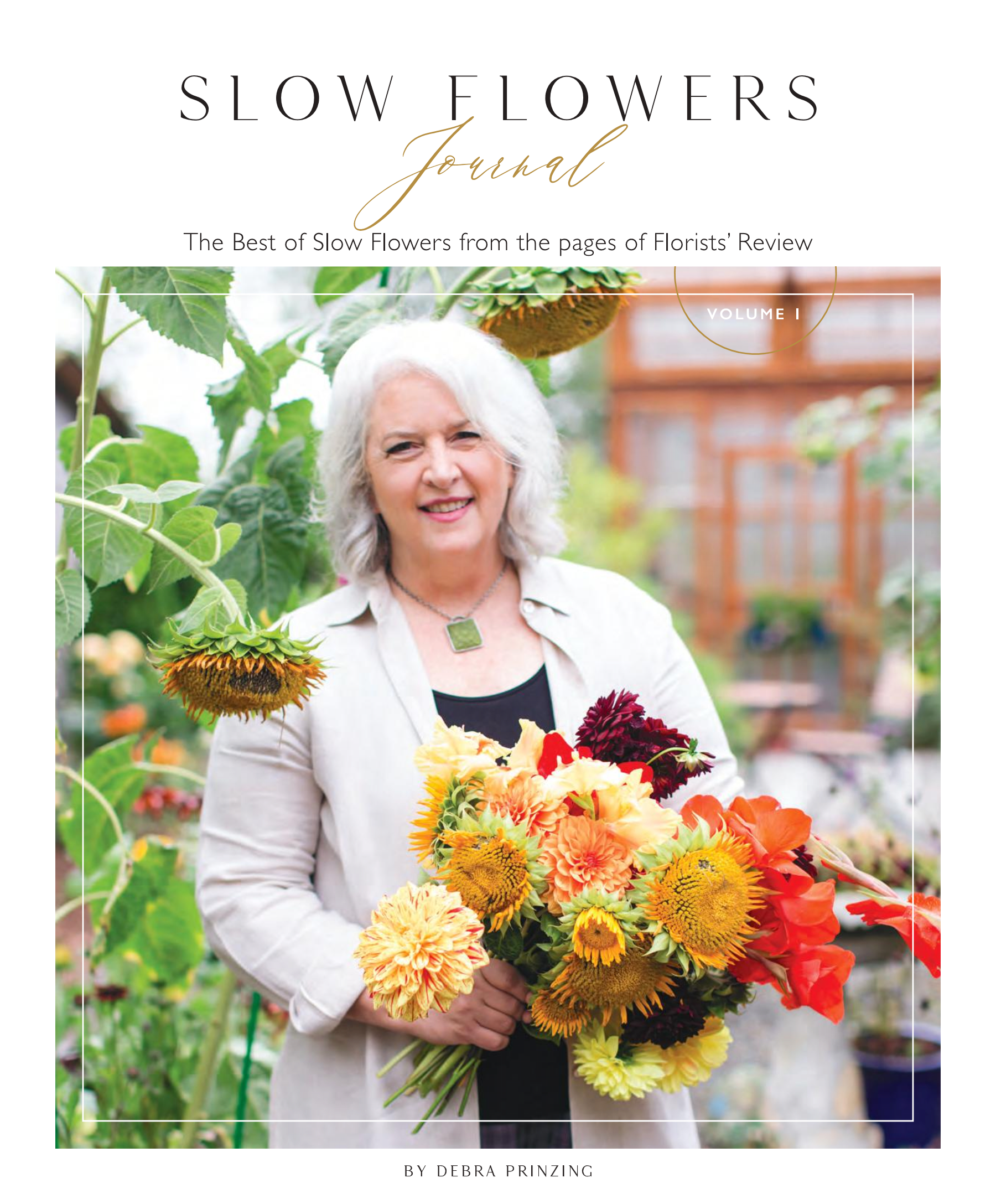 Eighty Slow Flowers members are featured in its pages and we will share a big reveal of this beautiful, 128-page book, published by our partners at Wildflower Media/Florists’ Review.
Eighty Slow Flowers members are featured in its pages and we will share a big reveal of this beautiful, 128-page book, published by our partners at Wildflower Media/Florists’ Review. 